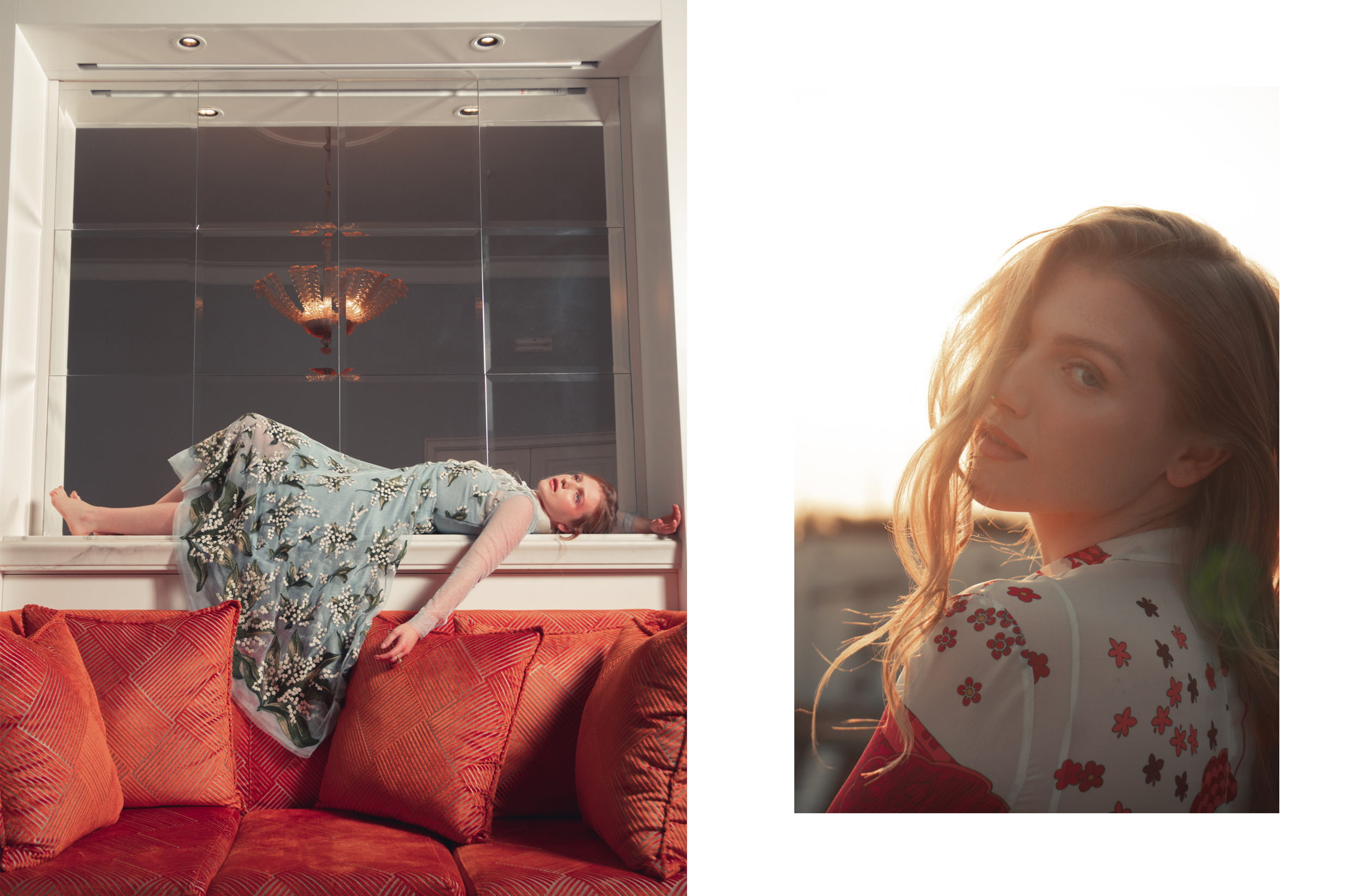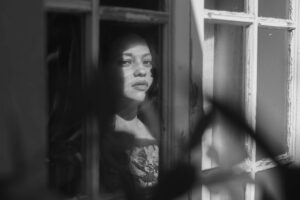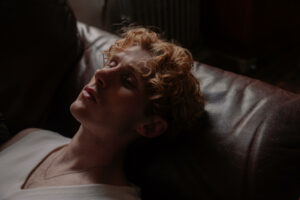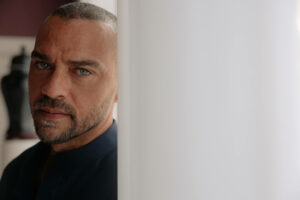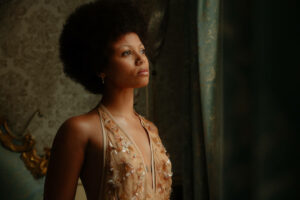Between the rooftops and terraces of Rome, our journey to discover the new generation of Italian actors who are finally finding the space to express themselves is still on.
SHE charmed us with her acting in “The New Pope,” where she plays a nun who looks after the Pope (Jude Law) during his coma. We were amazed by her great expressiveness and, once we met her, we fell in love with her even more. As a child, Jessica Piccolo Valerani dreamed of being Kate Winslet in “Titanic,” and her great passion for cinema convinced her to take part in “Costellazioni d’Autunno” (the first Italian short movie to be distributed on Prime Video), not only as a protagonist but also as a producer.
And this is just a small part of the story that Jessica is telling through her life, where the challenges (even the biggest of all, seeing ourselves for who we are) represent an additional motivation to keep going, to give more and more, and to do our best.
Between dreams that came true, such as working with Paolo Sorrentino, and those still to be realized, Jessica told us about herself on the background of a beautiful sunset over the eternal city, which we admired from the rooftop of the Hotel Savoy, knowing we are allowed to make mistakes, and that is precisely what makes every experience unpredictable and, for this reason, beautiful.
What’s your first cinema memory?
I was 7, my mom, my sister and I went to see “Titanic.” I think that movie ruined me forever, on a love-life expectations level at least… I’m still waiting for my Jack! I remember watching Kate Winslet and thinking: “I want to be like her when I grow up.” She still is one of my favorite actors.
What do you look for in a script?
First and foremost, time (the era) and space (the geographical location), secondly the need, the goal to achieve that makes my character act in a certain way. The more the conflicts and challenges, the more it becomes interesting to me.
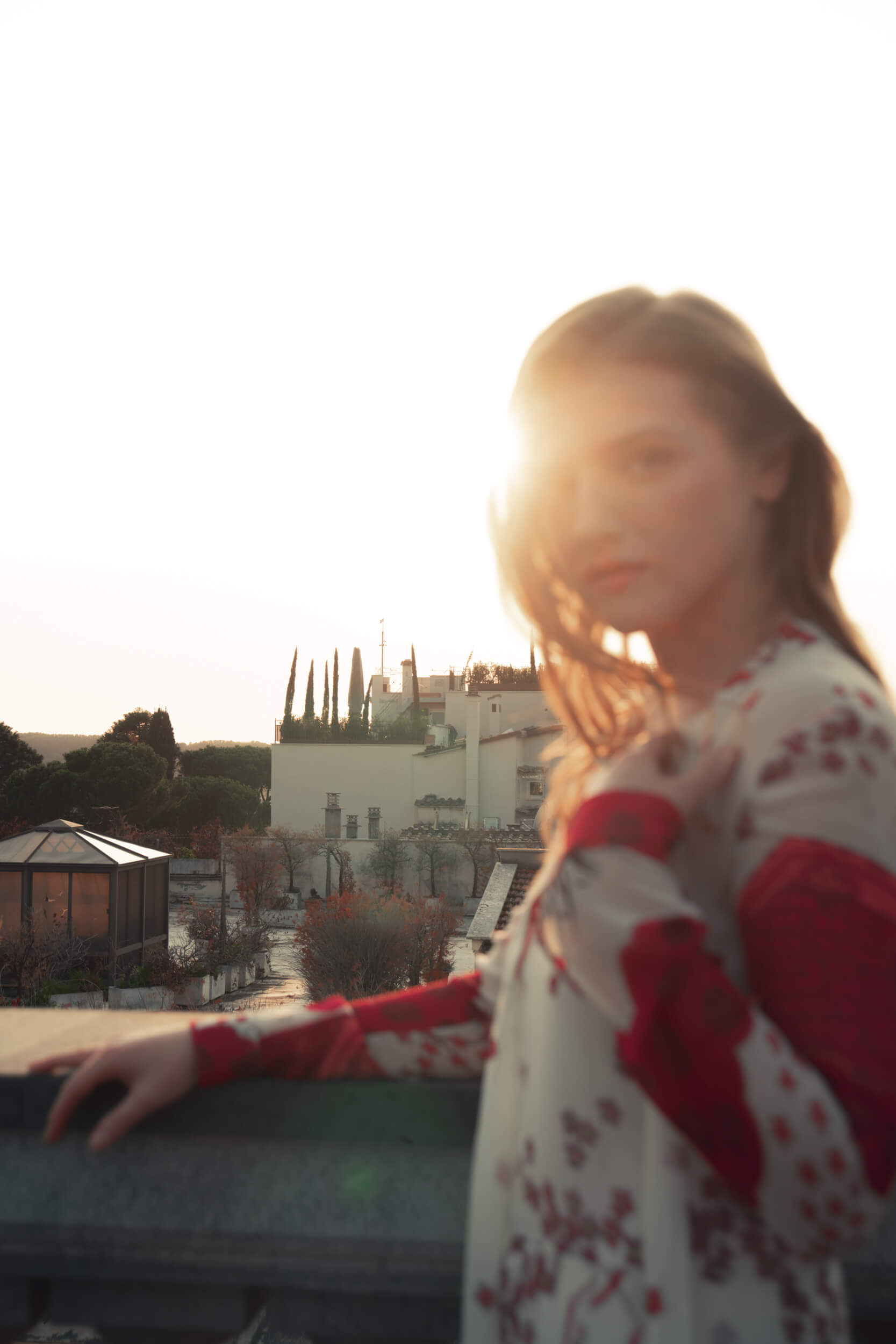
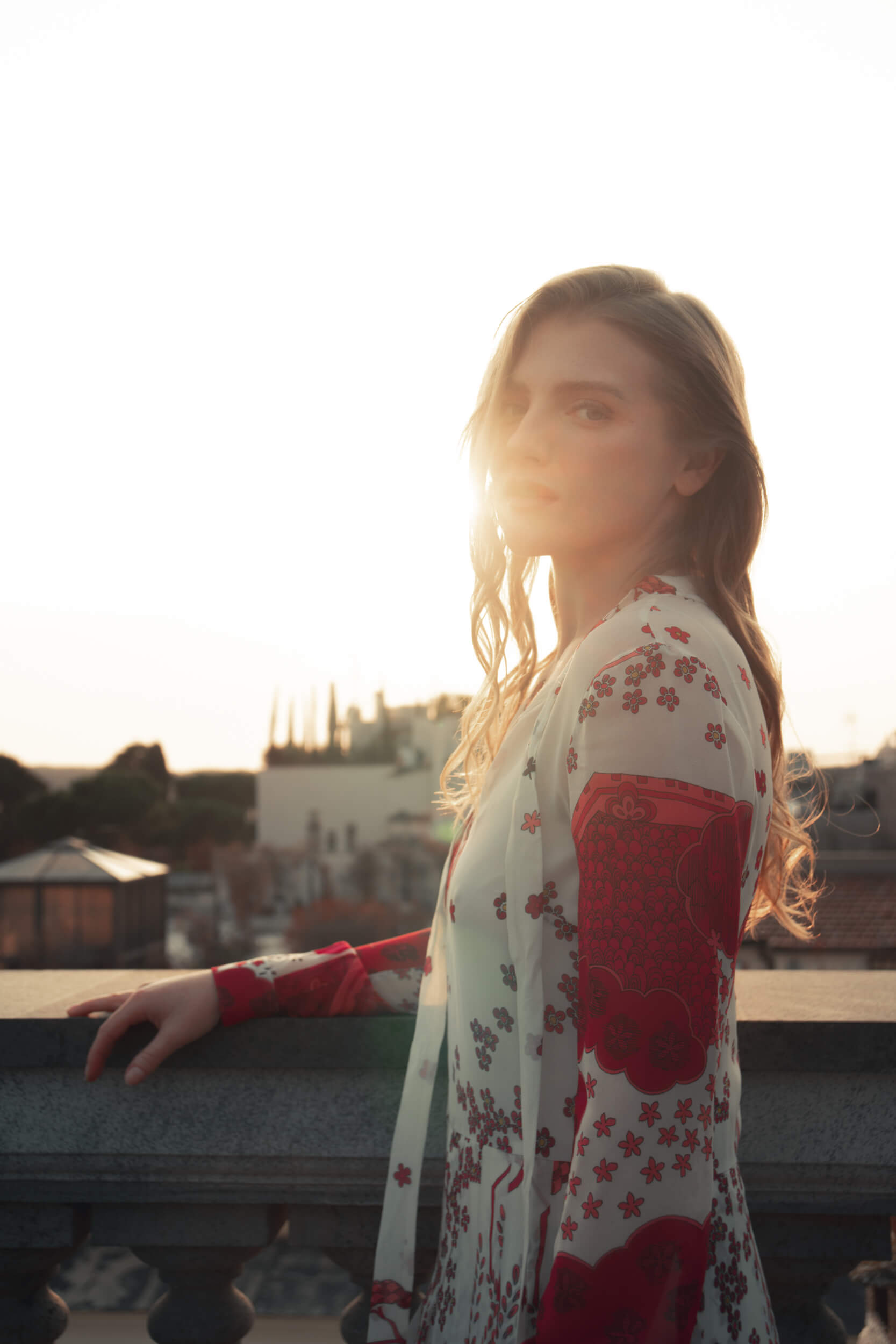
“The more the conflicts and challenges, the more it becomes interesting to me.”
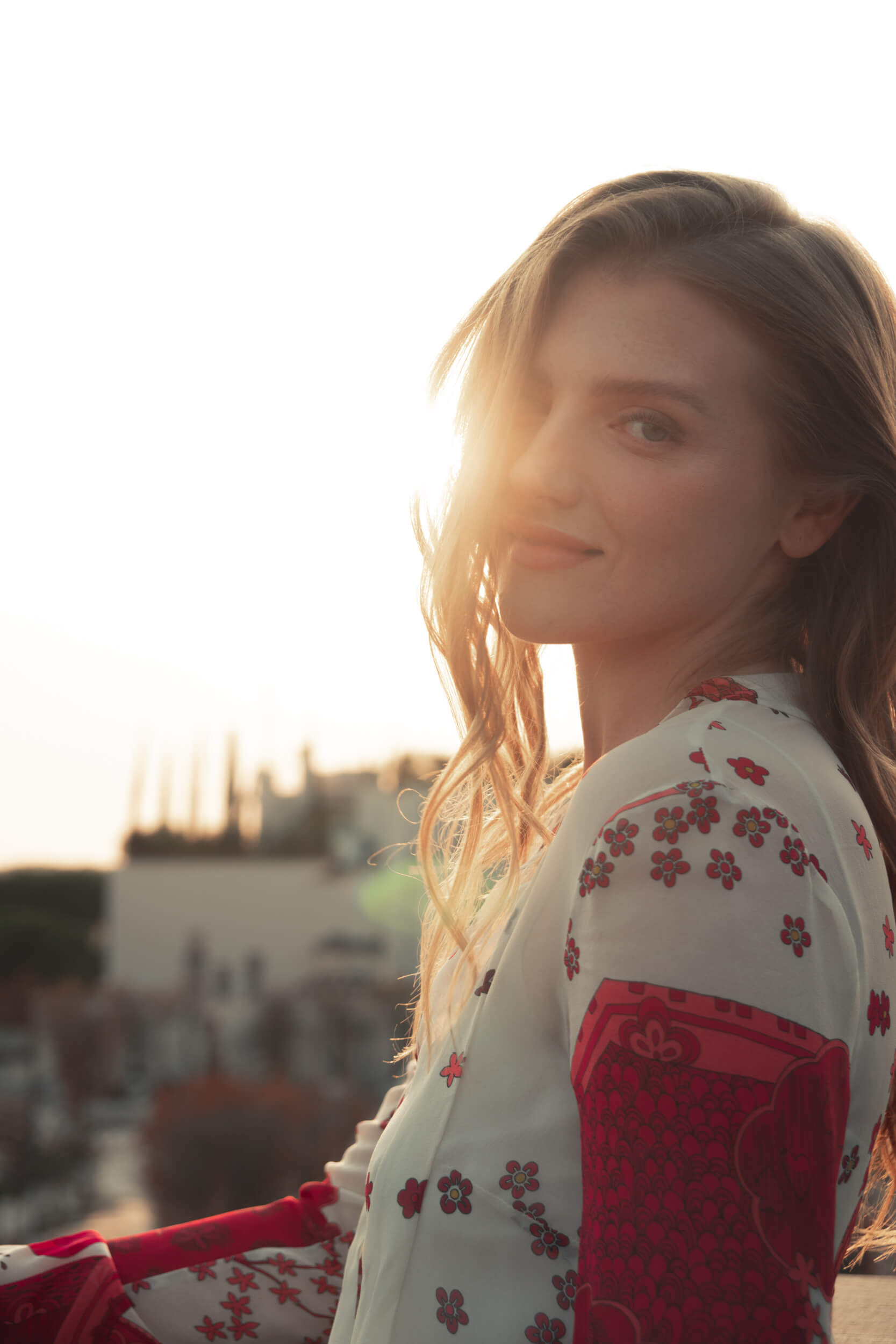
How much of Jessica do we find in the characters you play?
There’s always a bit of me in them, especially a bit of what I would want to be like, but I can’t because reality doesn’t give me any chance to try it out. My characters are often more interesting than me and they give me knowledge, they’re freer.
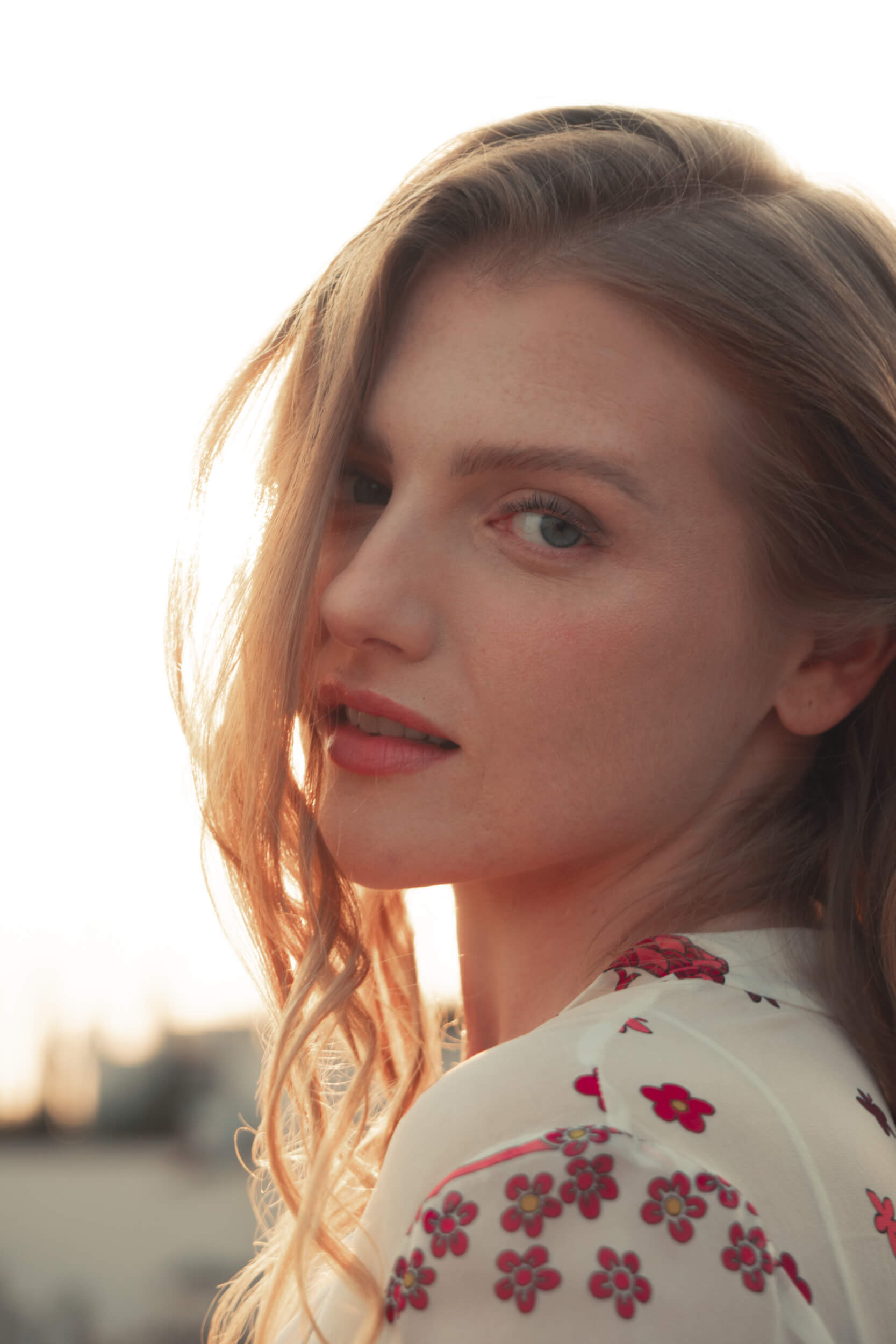
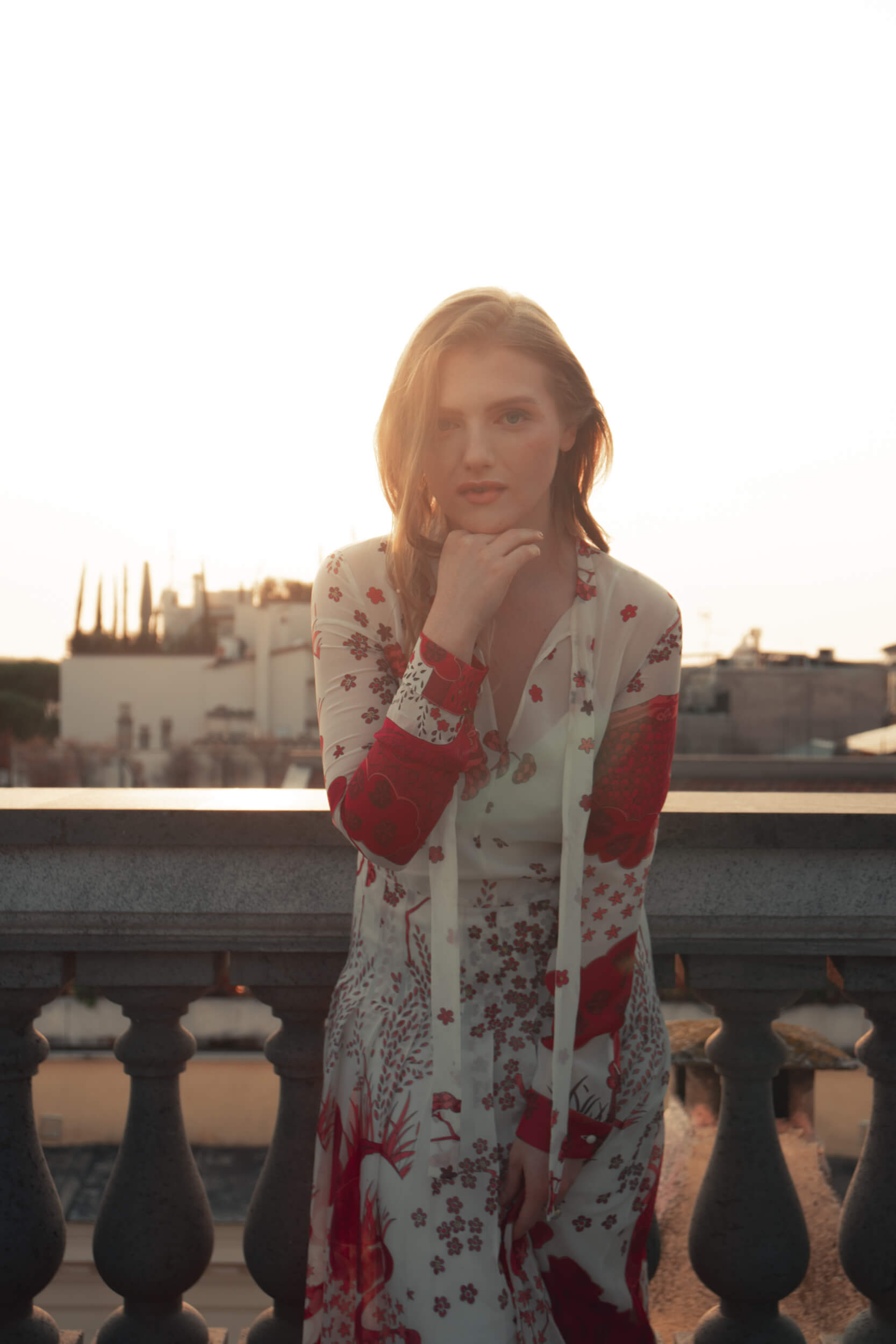
Do you like looking for some space to improvise?
Yes, especially at the beginning, in the research phase, I tend to improvise a lot. Then, once I find all the elements, I try and stick with them until the end, to see where they lead me.
“Costellazioni d’autunno,” the first Italian short movie to be ever distributed by Amazon Prime Video (ITA, USA, UK), a project made with colleagues that are also friends, how was the experience on set?
Crazy, also because the headquarter was my house. It’s been eight days of non-stopping work – we allowed ourselves only a few breaks to sleep. It’s a project to which I will always feel attached because it was the opportunity I had to understand what “making cinema” really means, in all its parts. We produced the film with our own money, and we asked everyone to work for free because we only had enough money to pay the rent of the equipment and the living costs. I would finish shooting some scenes and then found myself preparing lunch boxes. The biggest challenge was to completely and continuously detach myself from all the difficulties related to the production of the short film to become Amalia, to get into the character I played.
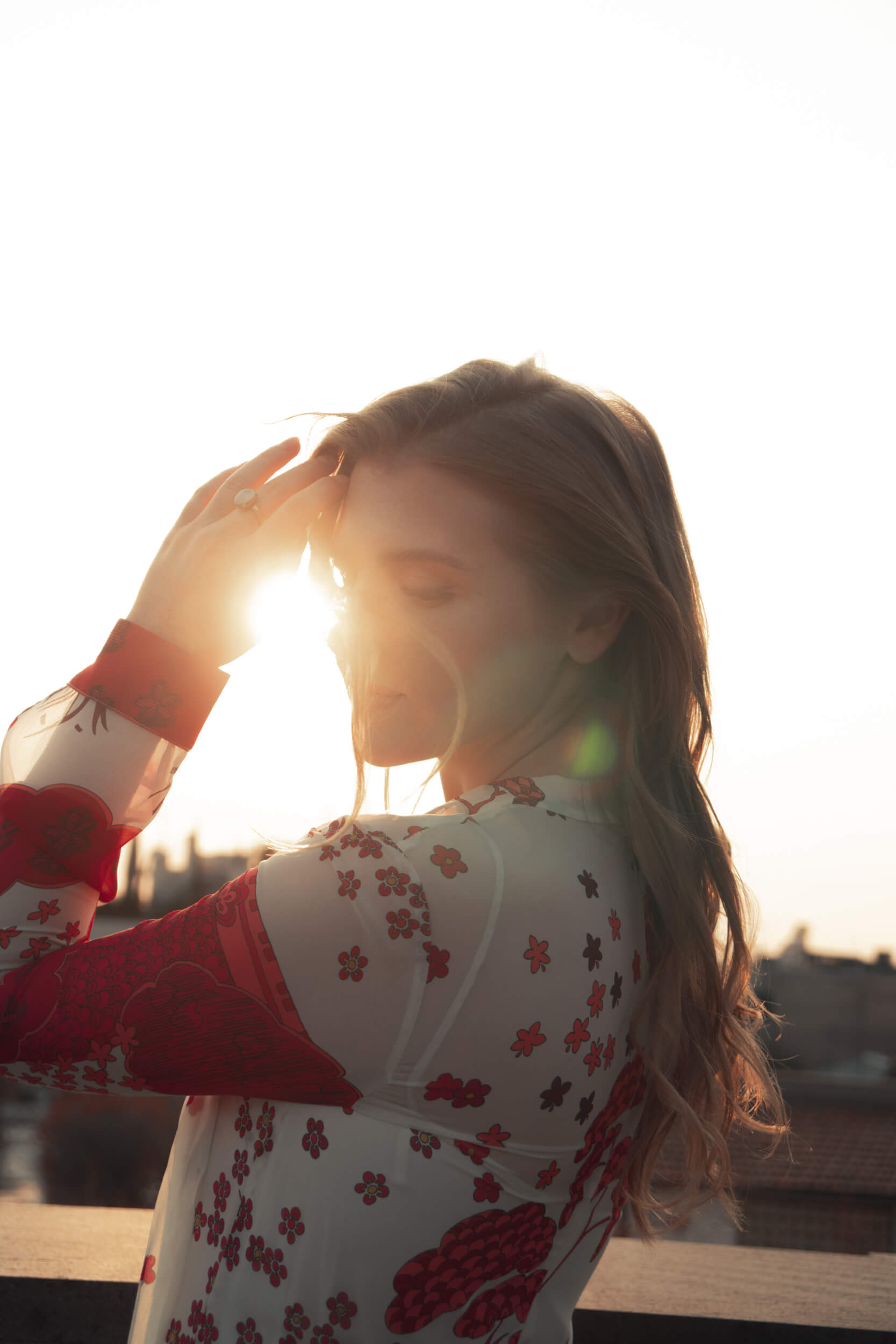
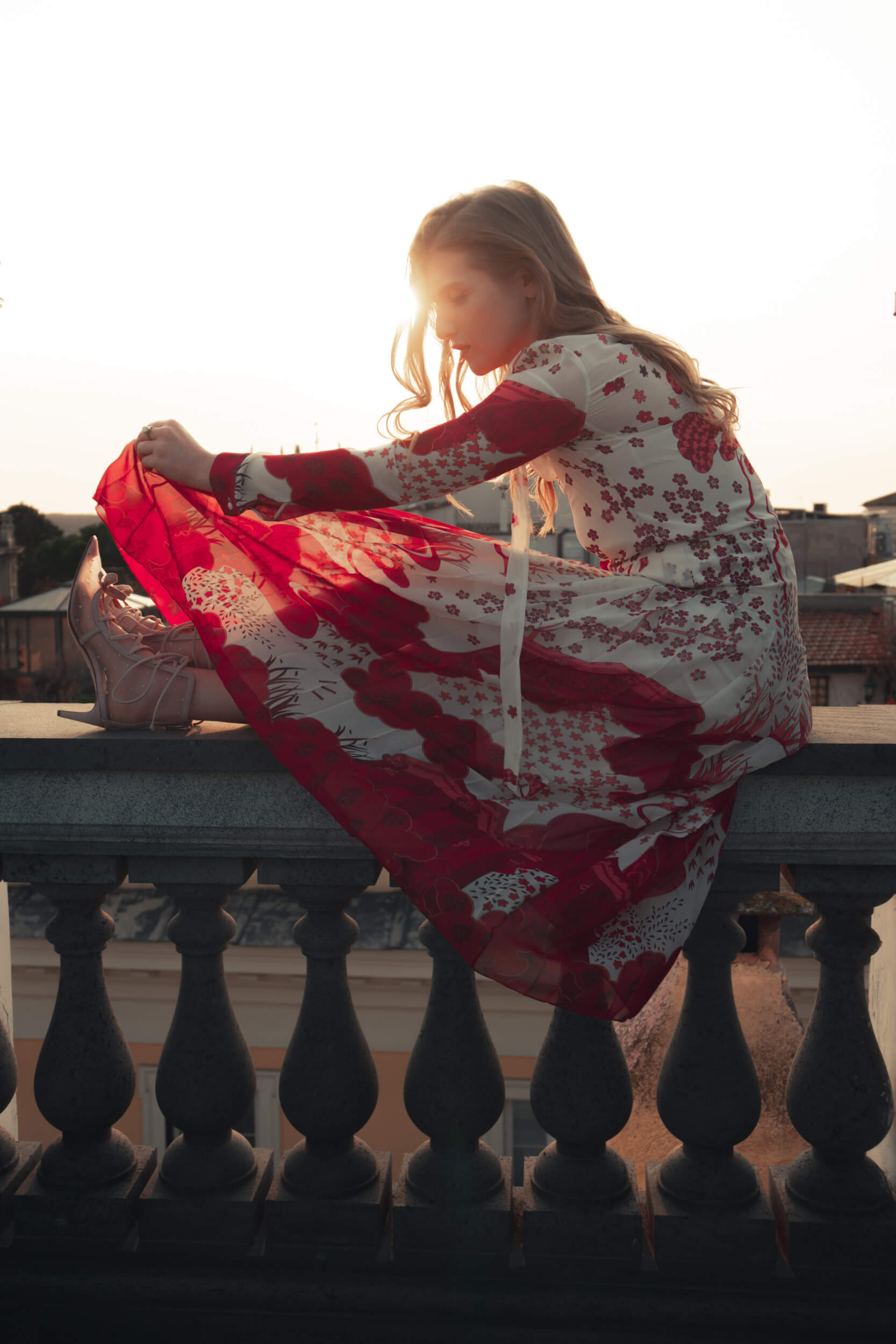
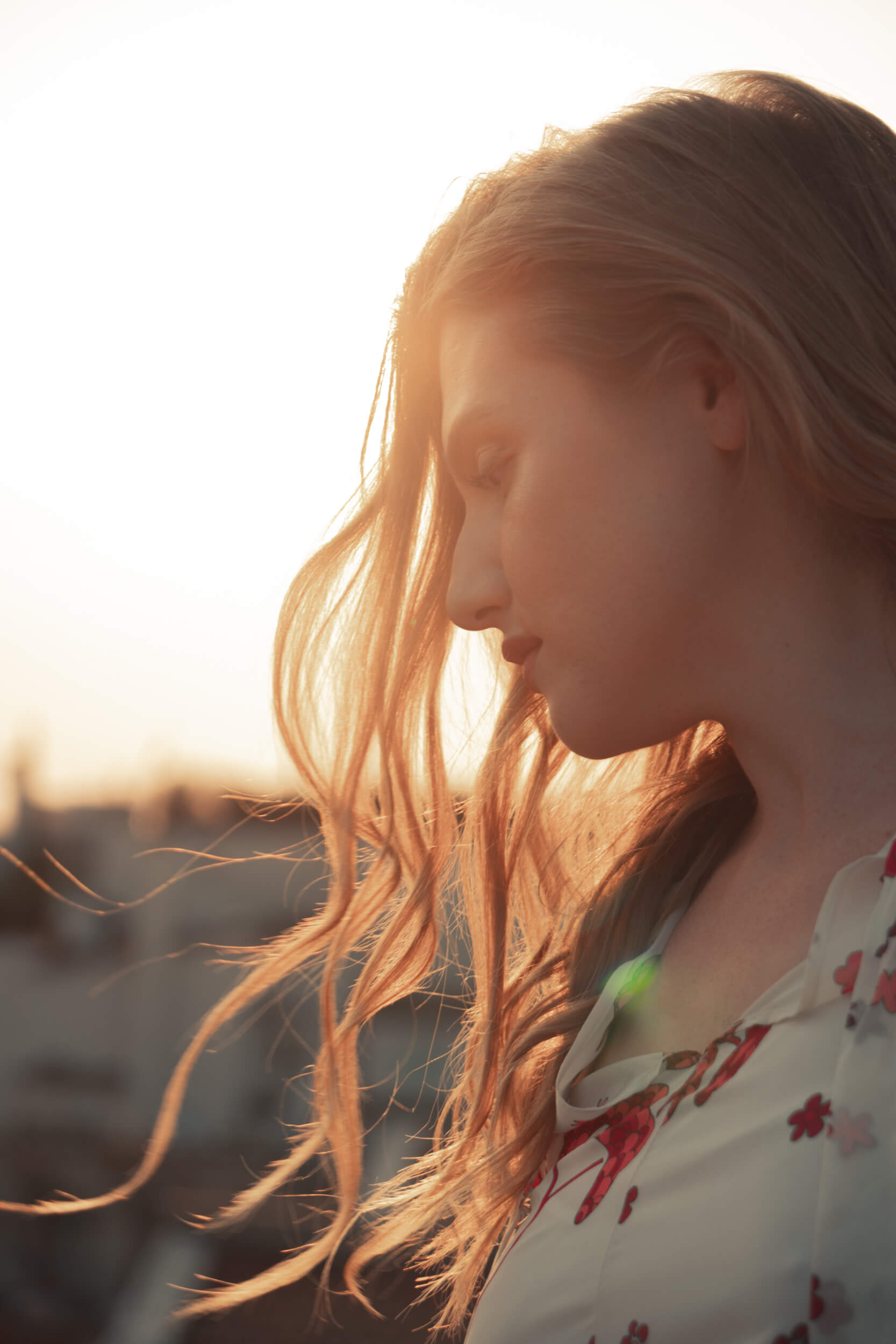
“The biggest challenge was to completely and continuously detach myself from all the difficulties related to the production of the short film to become Amalia, to get into the character I played.”
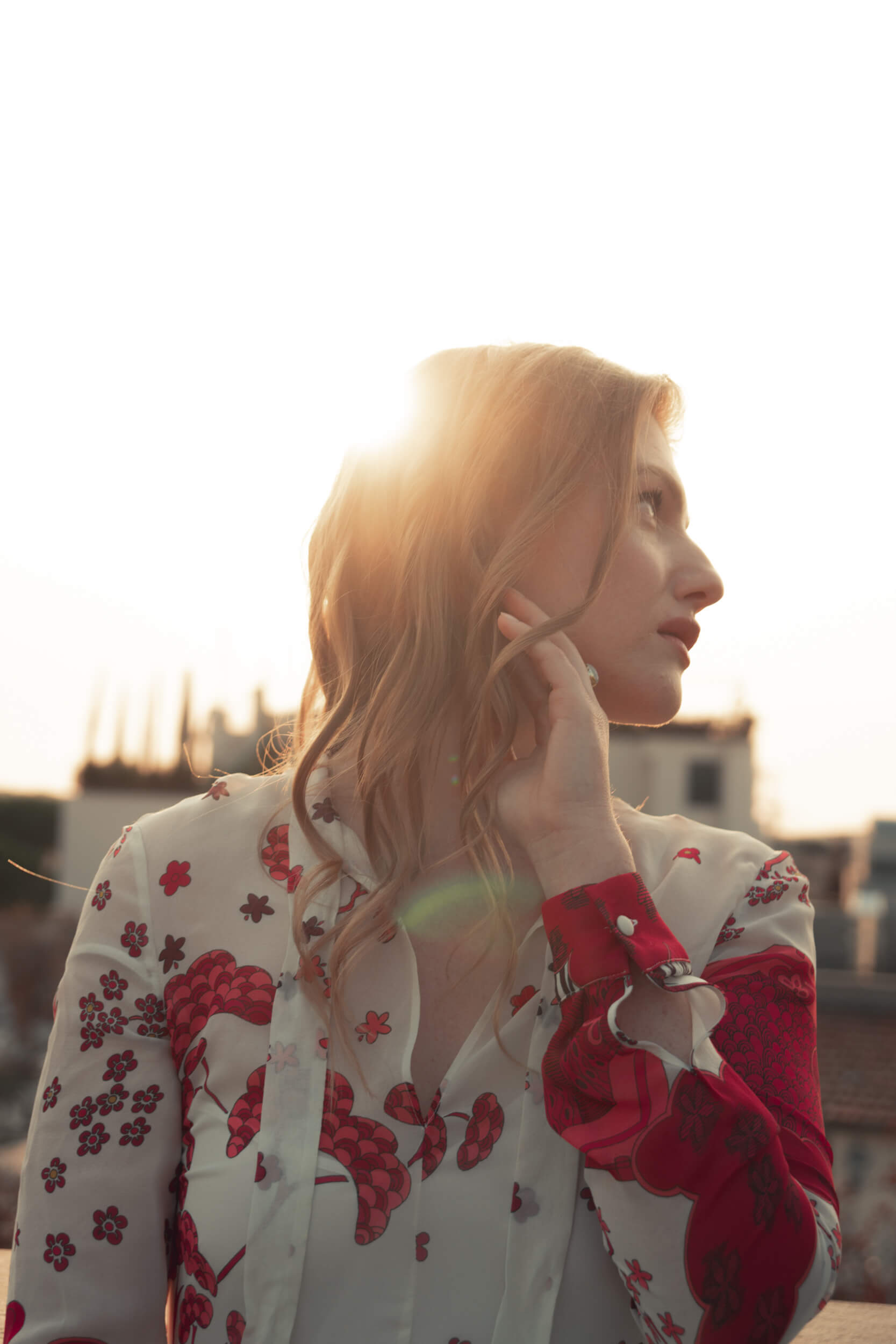
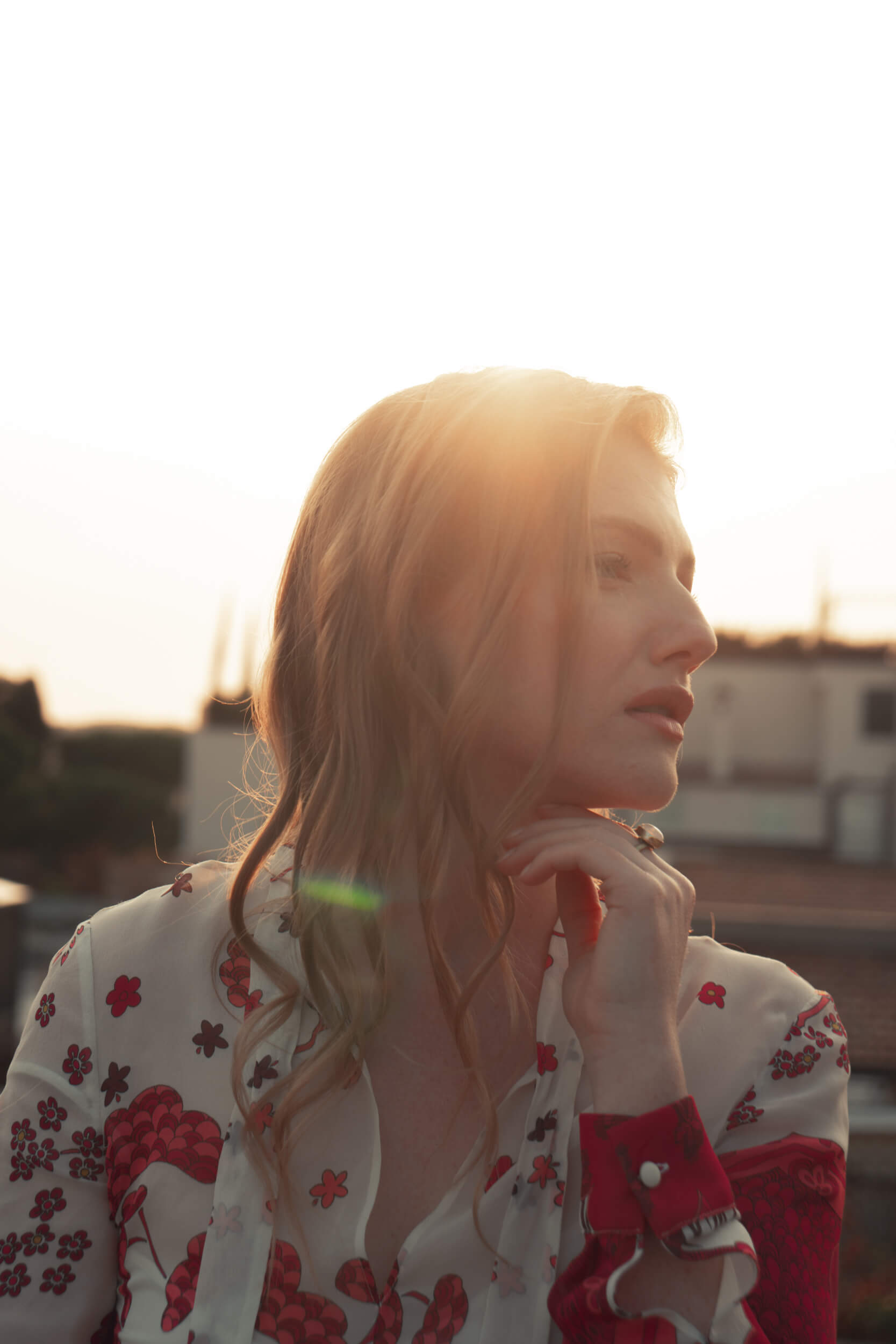
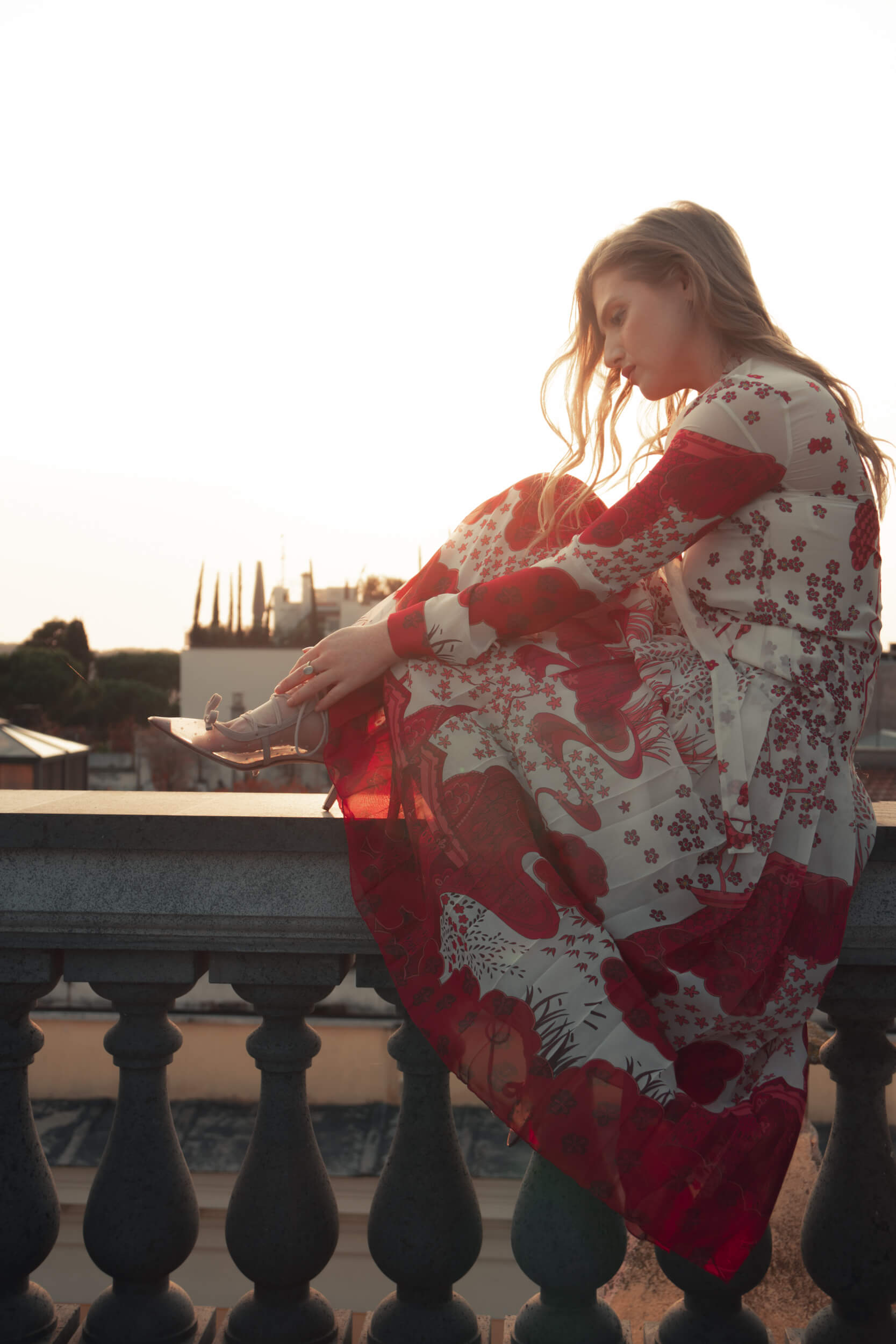
What’s the magic of filming a short movie, compared to a long-feature film or a TV series?
What’s magical is the story you tell, who tells it, and how you decide to tell it. I can’t think of any significant difference between short films, cinema, or TV series.
What does “feeling comfortable in your own skin” mean to you?
It means not to be afraid of being what you truly are. I think that the biggest, but also the most interesting challenge is to manage to see ourselves for who we really are, for better or worse. This is the only way we can go a little bit beyond our limits.
What’s the cinematographic encounter that’s been the most significant for you so far?
Paolo Sorrentino and Paolo Taviani.
Speaking of encounters, in “The New Pope” you worked with a lot of people, among whom Paolo Sorrentino and Jude Law. How was it like to walk in that set? What did you bring home from that experience?
It’s was a dream come true, or even better than that because I would have never thought of working with Jude Law. The set of “The New Pope” is a machine of exceptional experts who perform their activities with an almost manic perfection. I was very scared, but at the same time, it was the easiest thing I’ve ever done because everything always worked in the right way. There’s a lot that I brought home with me, but most of all the desire to work as often as possible in a set like that.
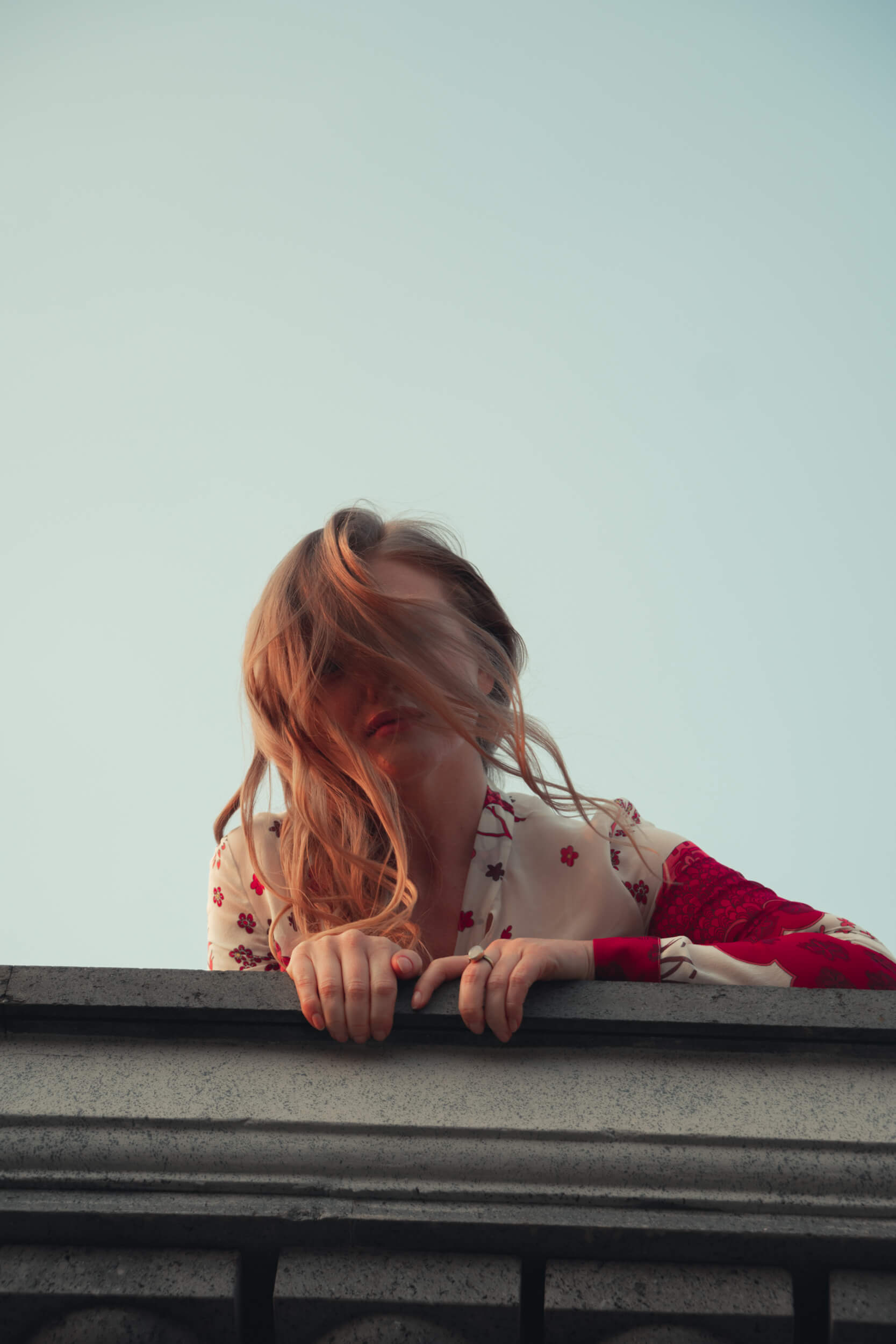
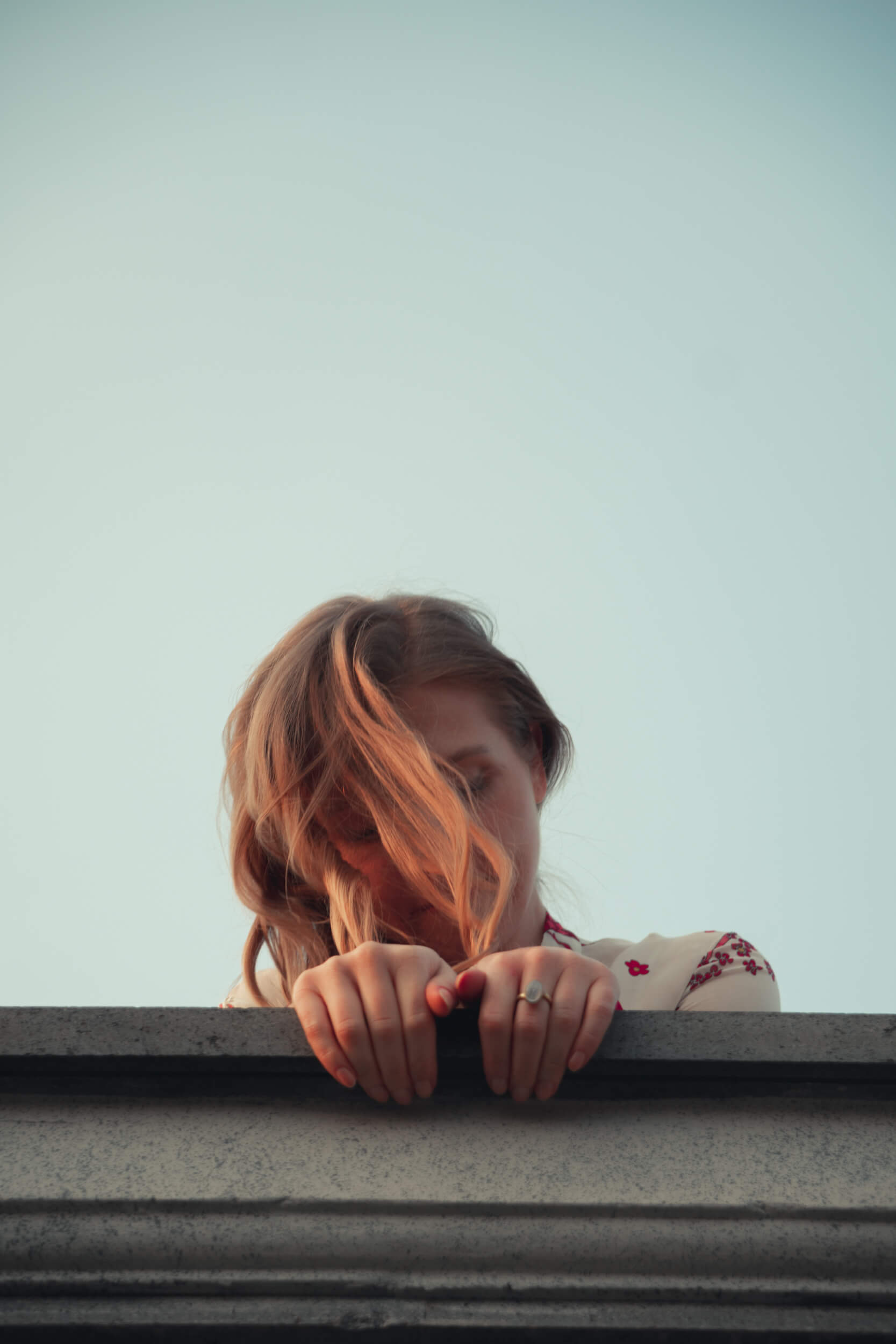
“I think that the biggest, but also the most interesting challenge is to manage to see ourselves for who we really are, for better or worse.”
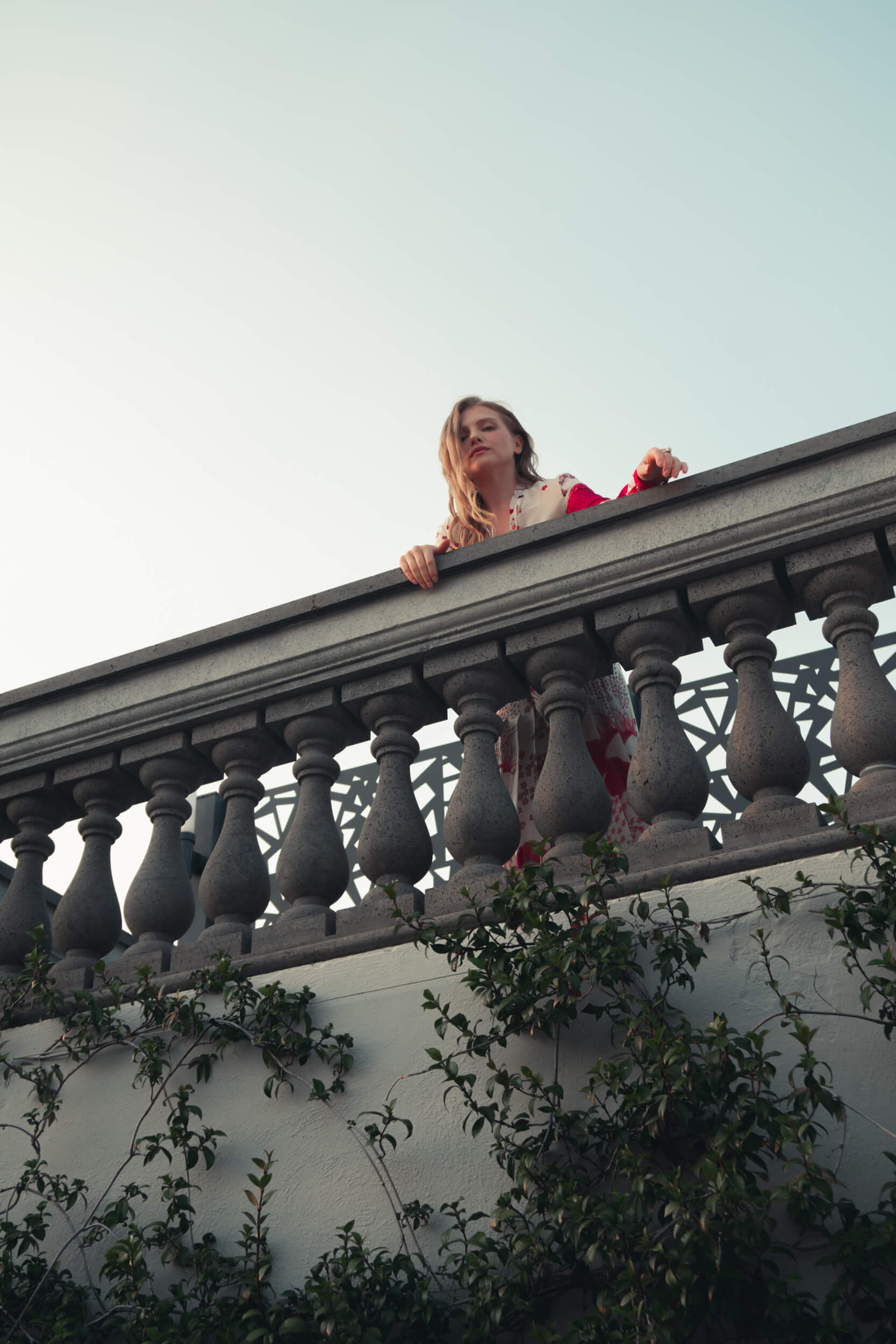
How was it like to work with Sorrentino? We already know you are a big fan of his and of his writing, as well: what’s your favorite out of his books?
Working with Paolo Sorrentino is a unique experience, magic is guaranteed, and as an actor, you find yourself in the hands of a maestro who knows exactly what he wants and how to make it come to life. His writing style sparks my brain, my heart, and my body at the same time. My favorite book by Sorrentino is “Gli Aspetti Irrilevanti” (this one too has to rigorously be on my nightstand).
In “The New Pope” you play a nun who takes care of the Pope while he’s in a coma. Your expressiveness is amazing. How did you prepare? What was it like to film that scene?
First of all, thank you. Before anything else, I prepared to play the role of a nun, which is a huge theme to make research on. I went to the church multiple times and I prayed, trying to understand and to feel on a sensory and emotional level with what means and where those places and those repeated words were bringing me. Then, there’s love, for the Pope in this case, but it’s still love. Filming that scene made me experience a feeling of great freedom. When you shoot very intimate scenes, if you manage to let go and totally believe in what you’re doing in that very moment, later you feel fortified and in a place that is way beyond what you had prepared or imagined.
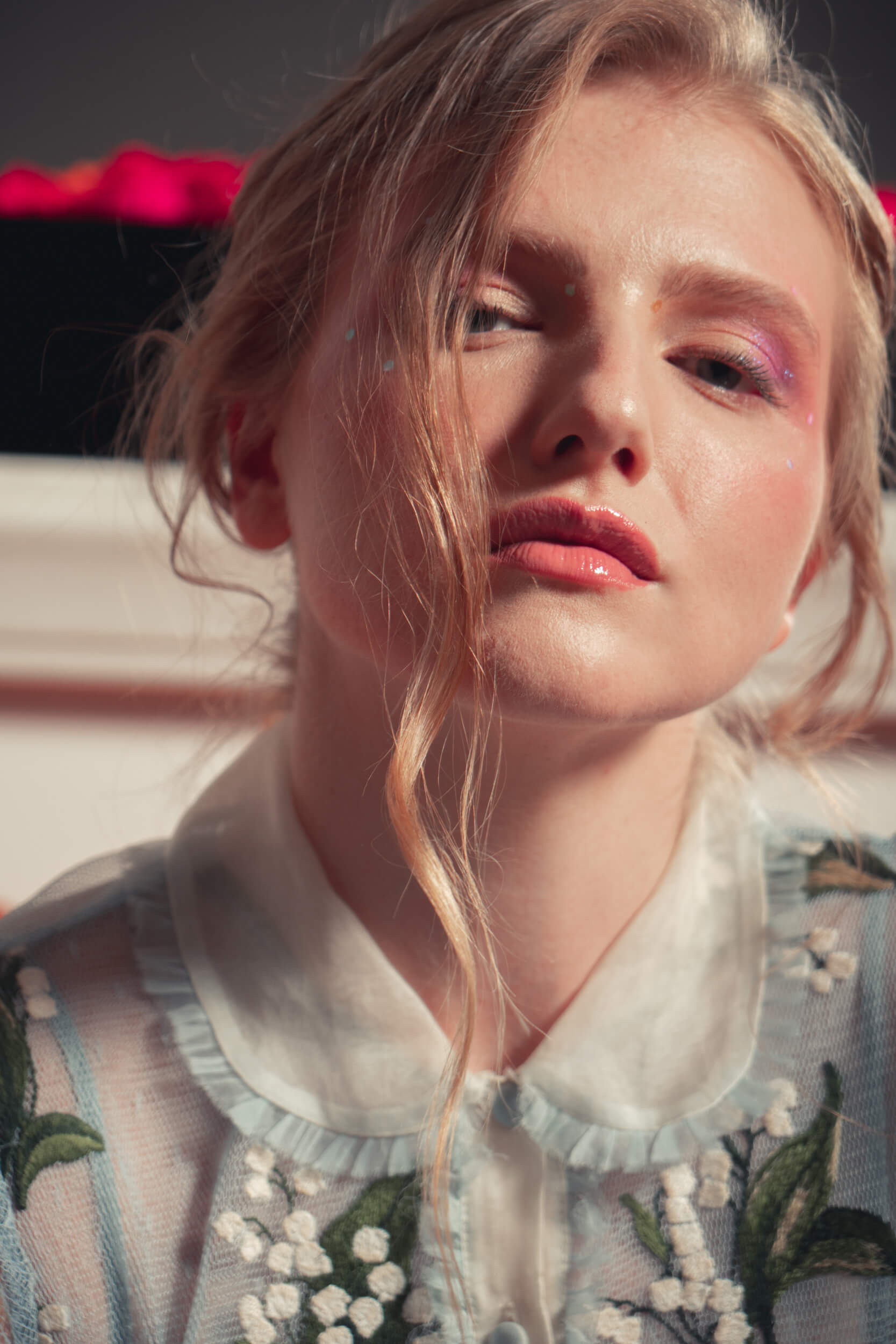
“Working with Paolo Sorrentino is a unique experience, magic is guaranteed, and as an actor, you find yourself in the hands of a maestro who knows exactly what he wants and how to make it come to life.”
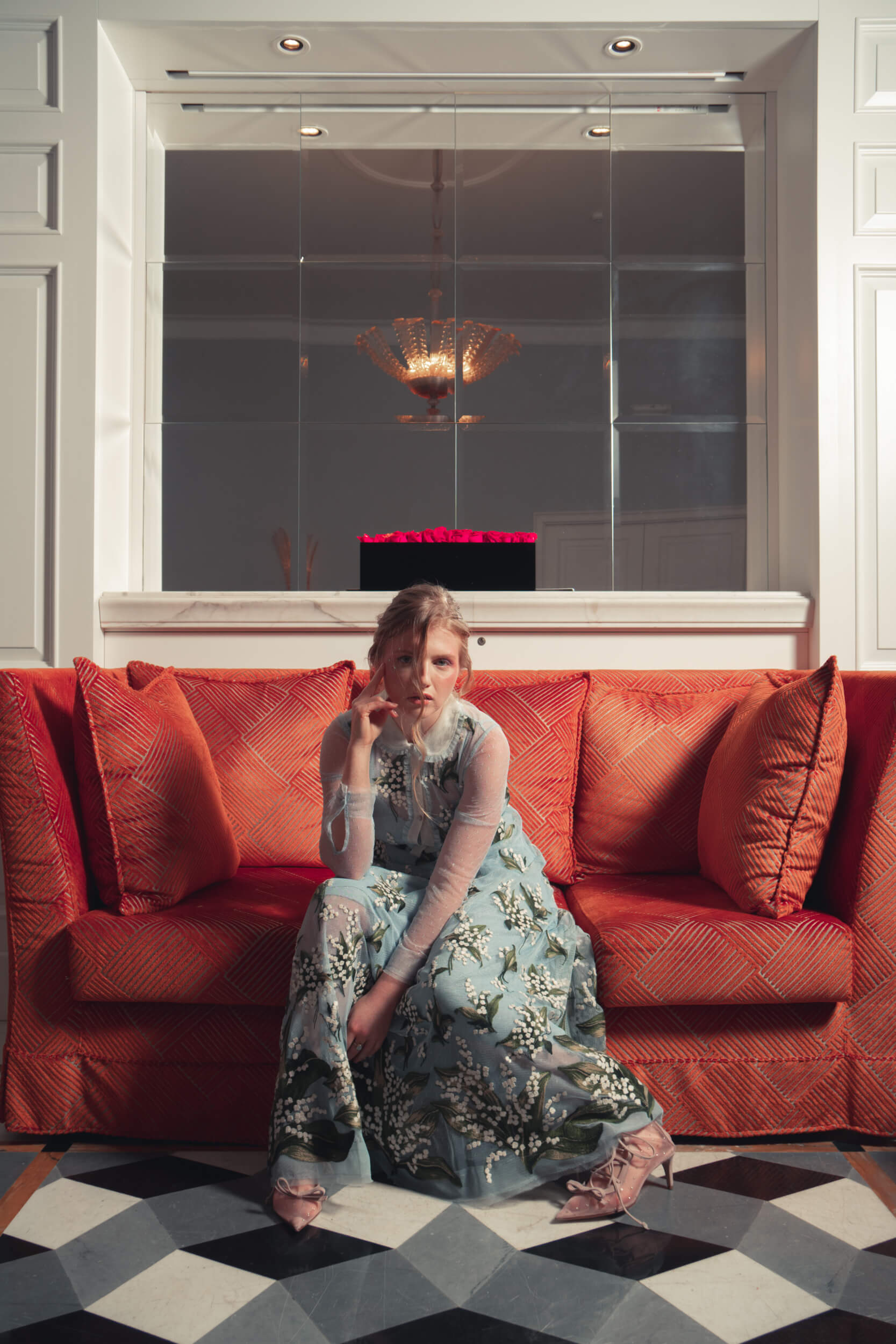
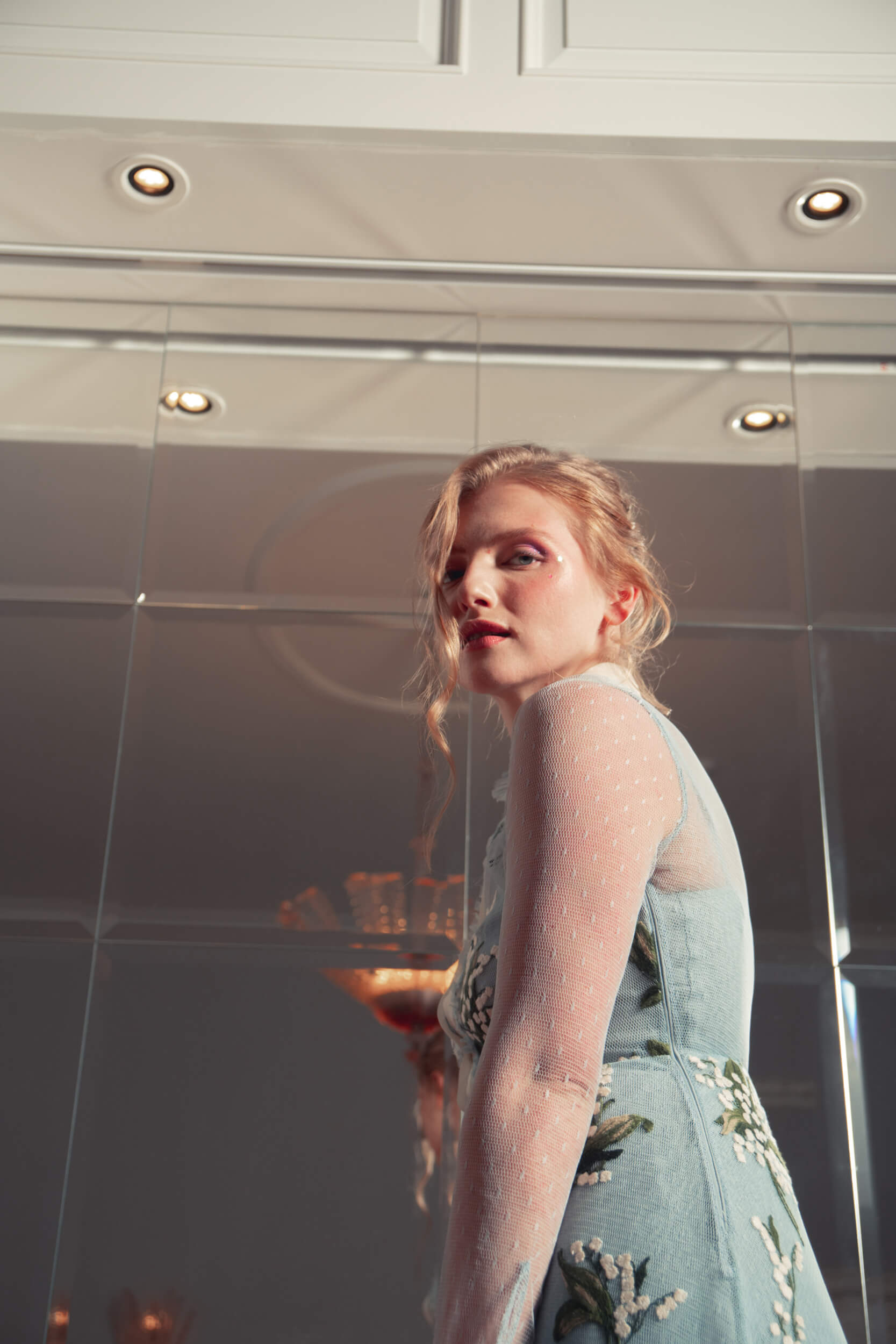
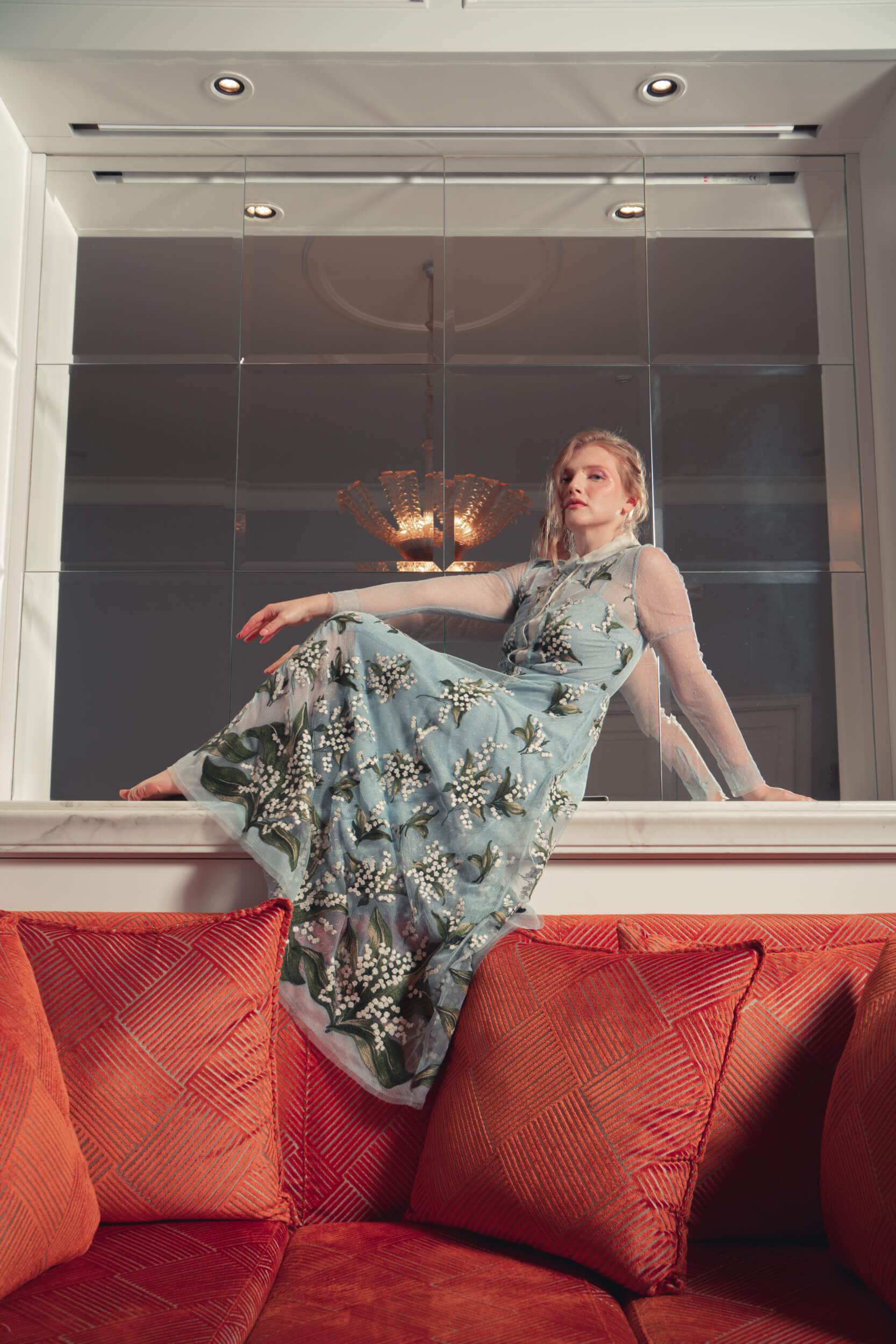
“I went to the church multiple times and I prayed, trying to understand and to feel on a sensory and emotional level with what means and where those places and those repeated words were bringing me.”
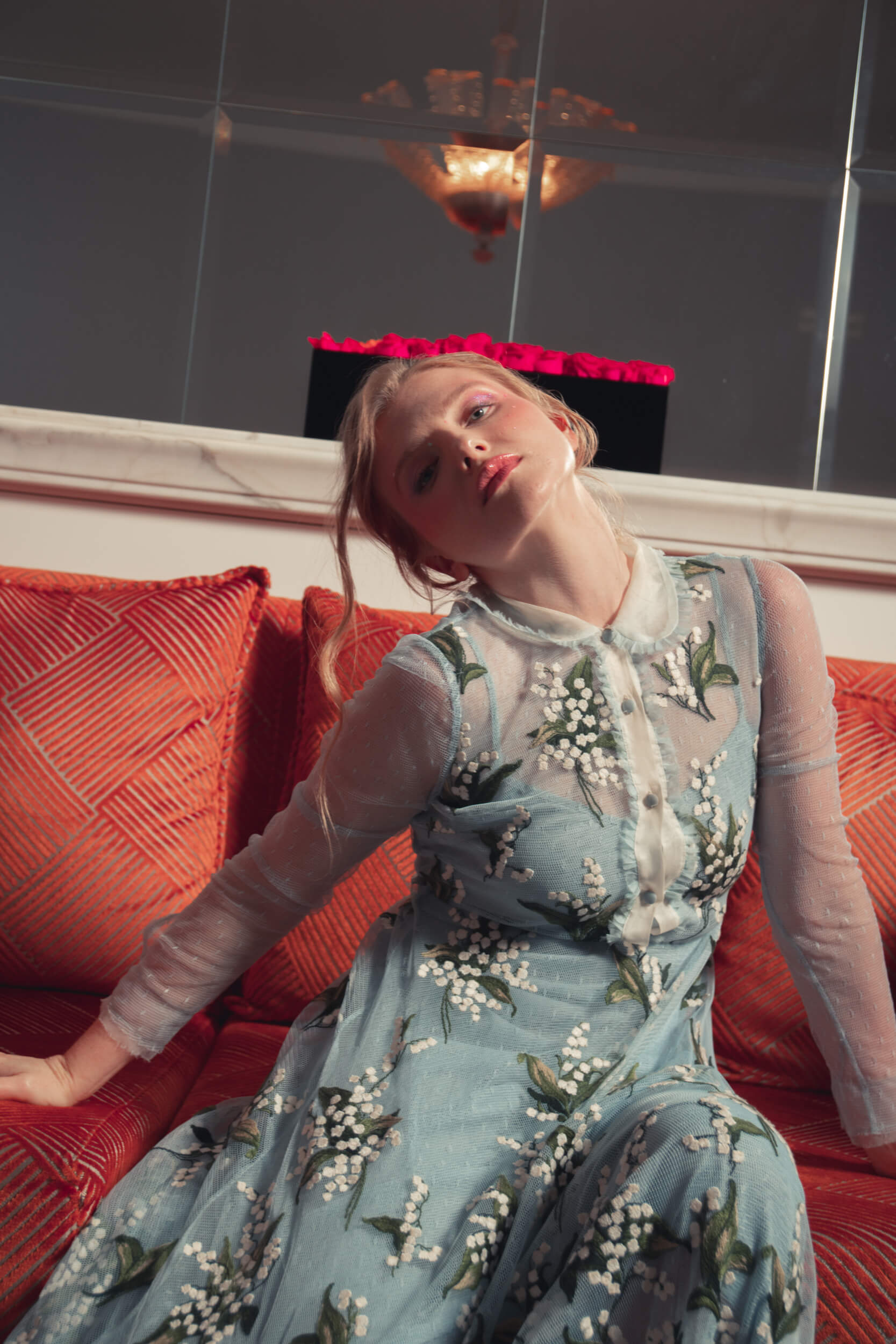
How much importance do you give to costumes when you play a character? Does wearing them feel “cathartic” to you?
They’re essential. The character comes in shape when everything is in there, costumes and makeup. They give you a different posture, way of moving, look. Even when I audition, I try and always buy something new to wear or put on a dress that isn’t mine, I let myself get inspired by it.
When do you feel the freest to express yourself?
When I don’t know anyone and anyone knows me. The moment of the very first encounter, both in everyday life and at work.
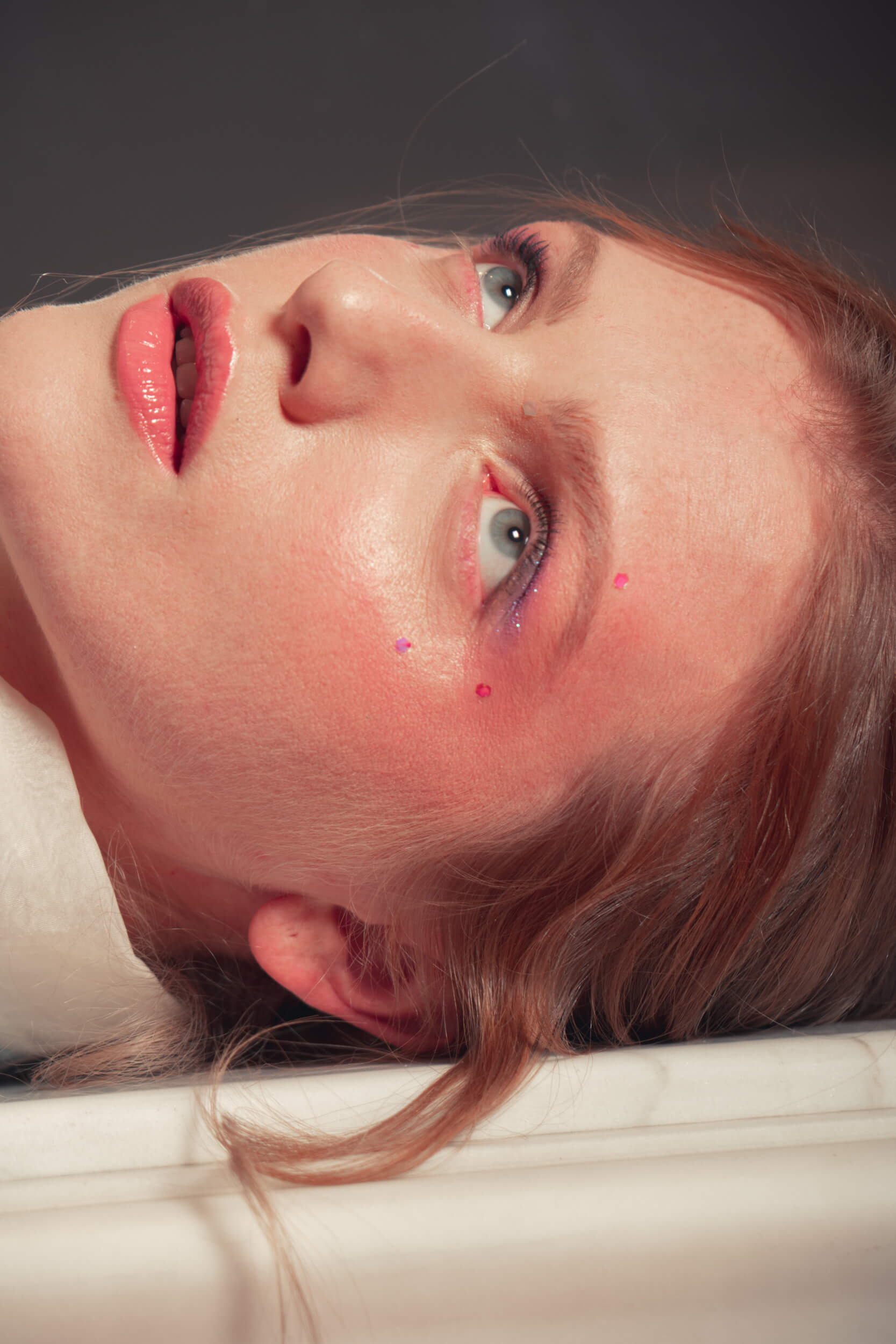
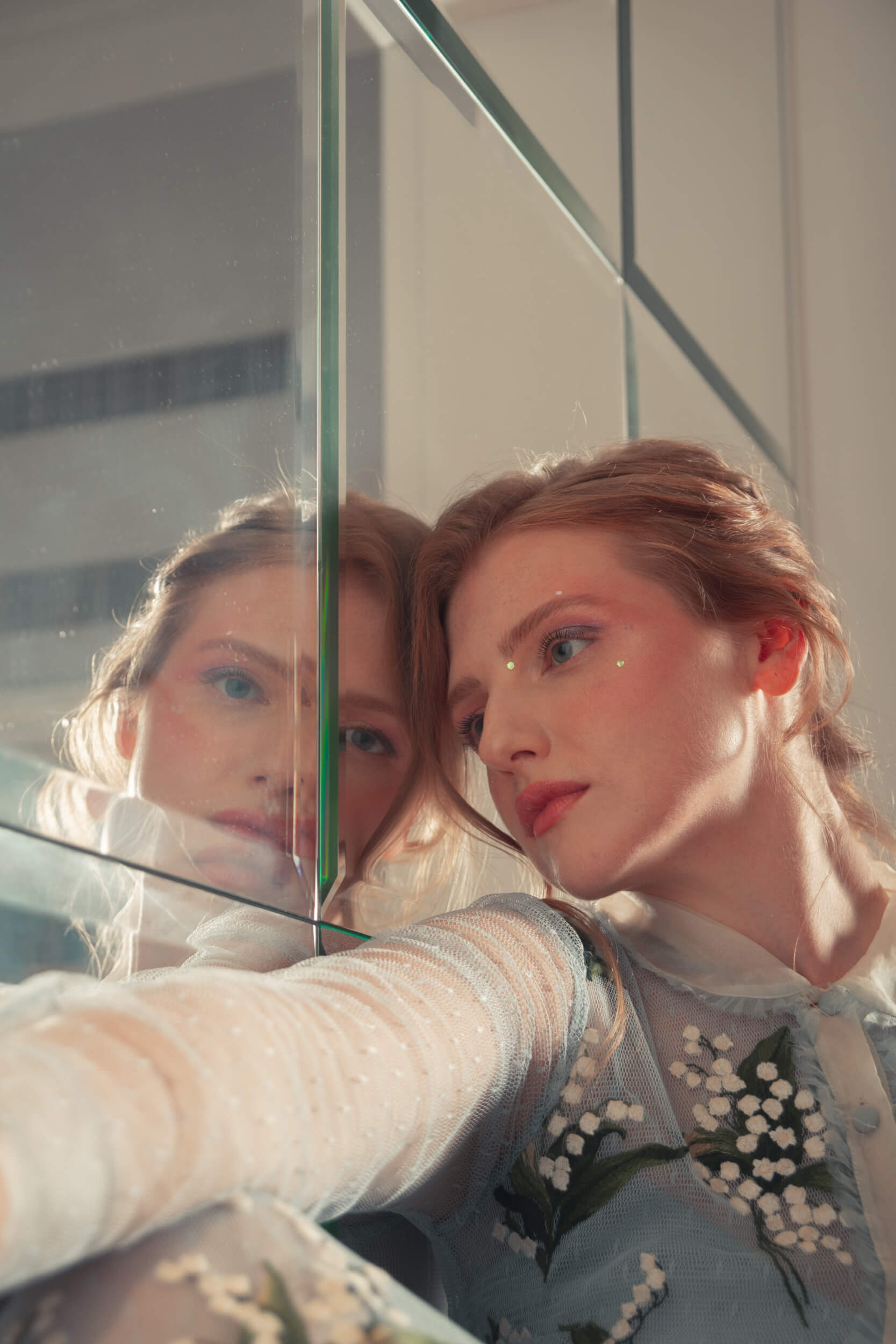
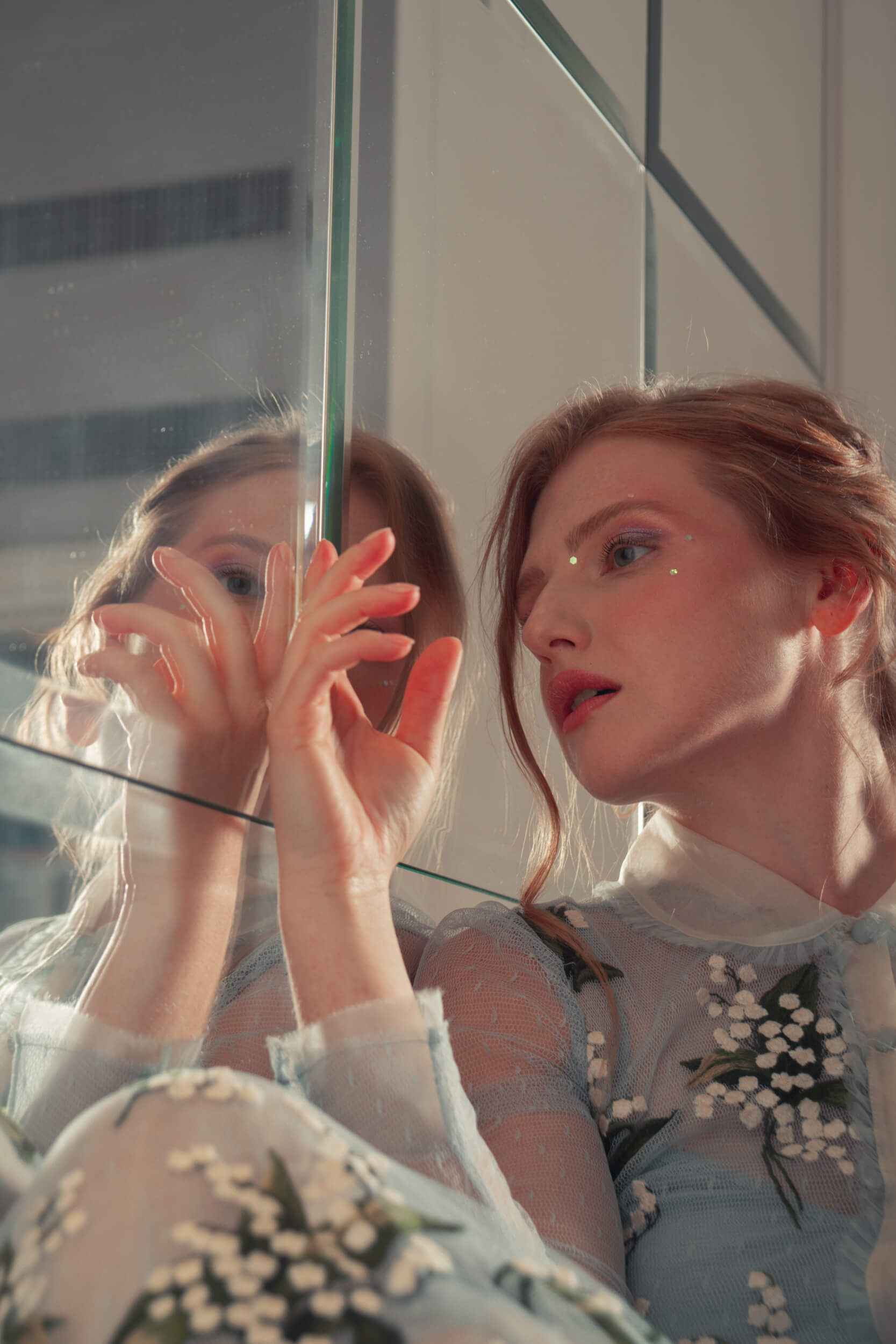
What’s the latest lie you told?
I perfectly stuck to my diet plan yesterday.
What’s the first DVD you bought?
I can’t remember, but I’m sure that the first DVDs I got were those I used to rent and give back before midnight so that I didn’t spend a lot of money and could get another one afterward.
What’s your guilty pleasure movie?
“Home Alone.”
What’s the book on your nightstand?
I always have lots of books on my nightstand, from those I’m actually reading to those I’ve loved and that I sometimes feel the need to flip through. From the sacred to the profane: there’s “Donne Mie” by Dacia Maraini, “Gridalo” by Roberto Saviano, but also “Club Godo. Une Cartographie du Plaisir” by Jüne Plã.
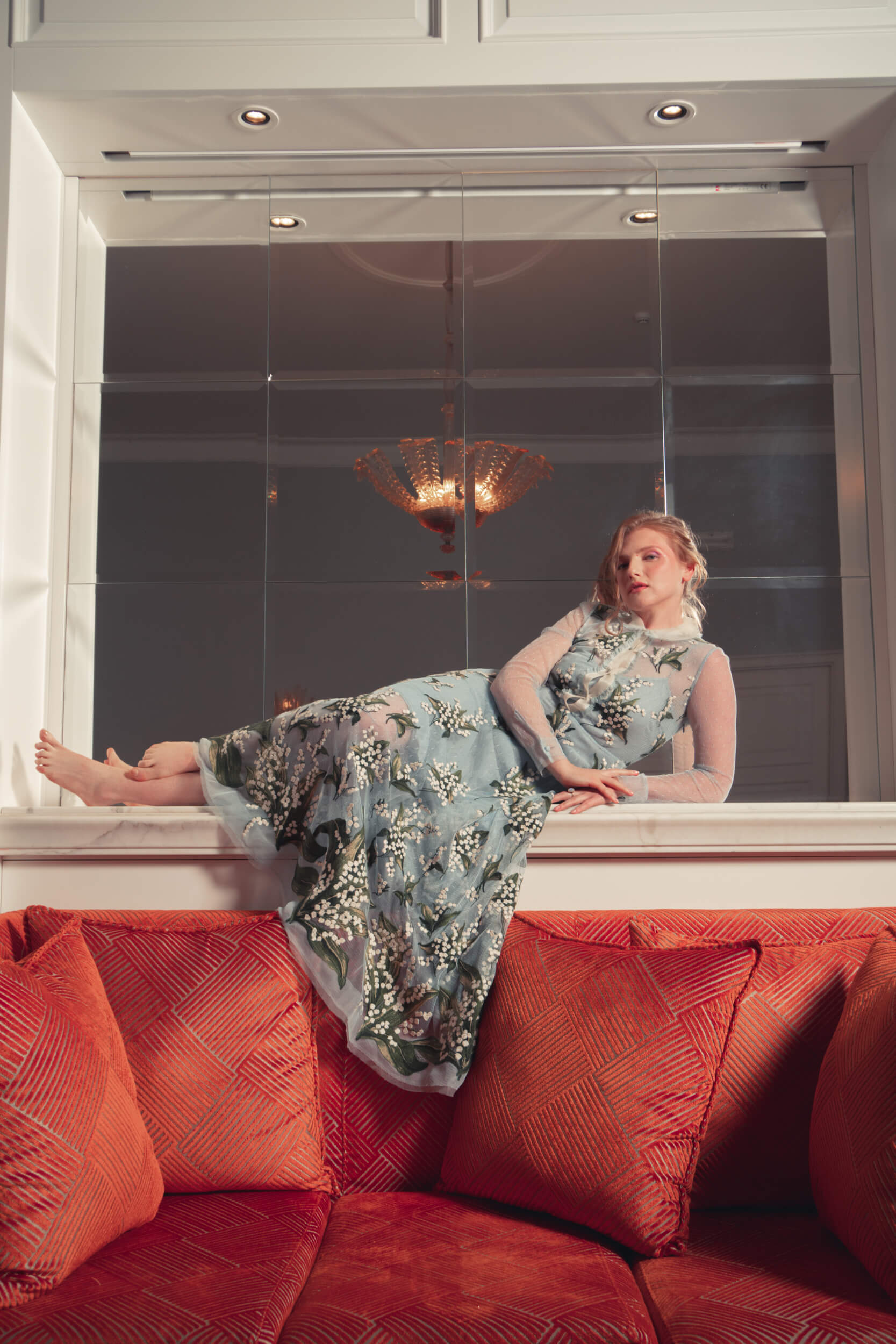
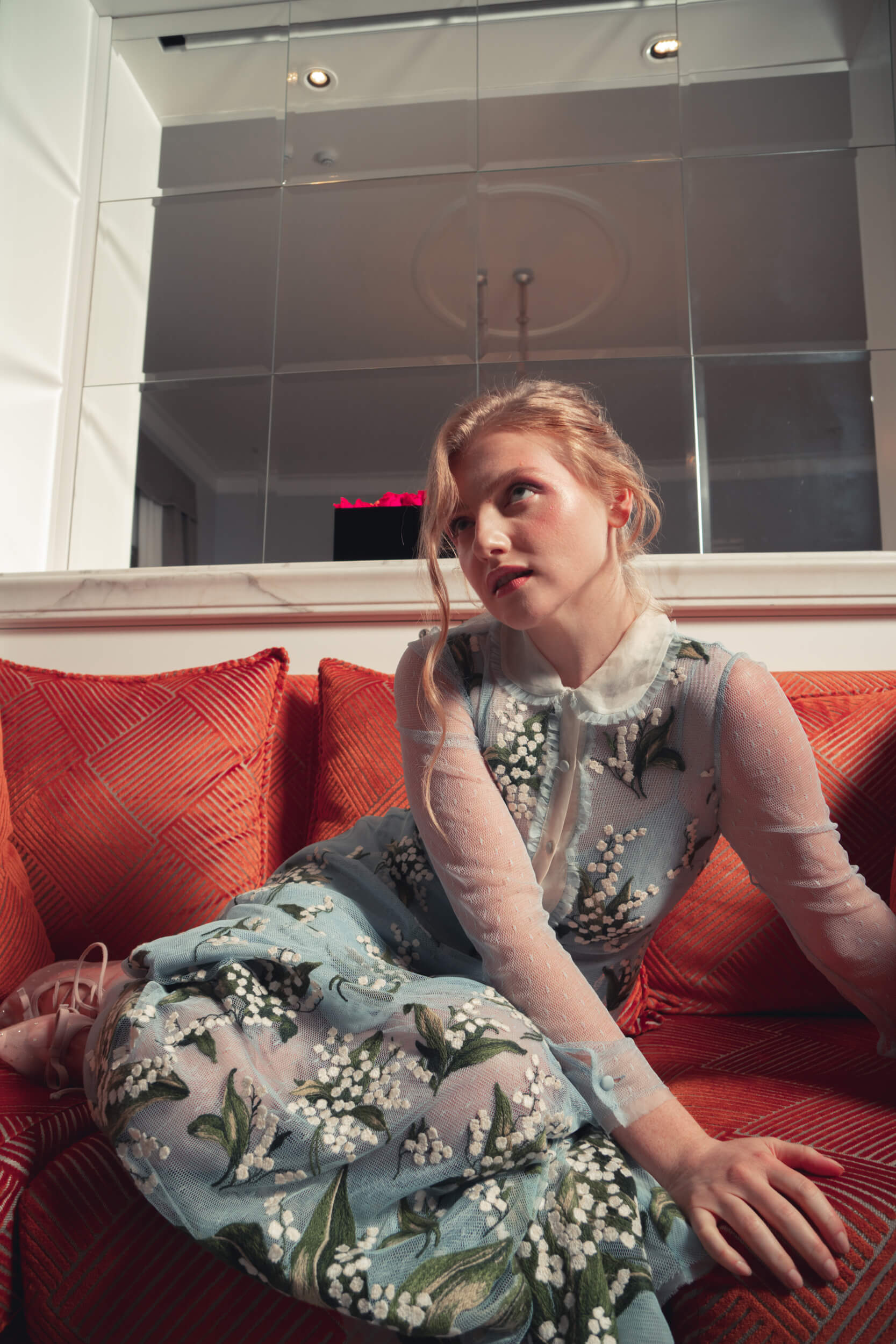
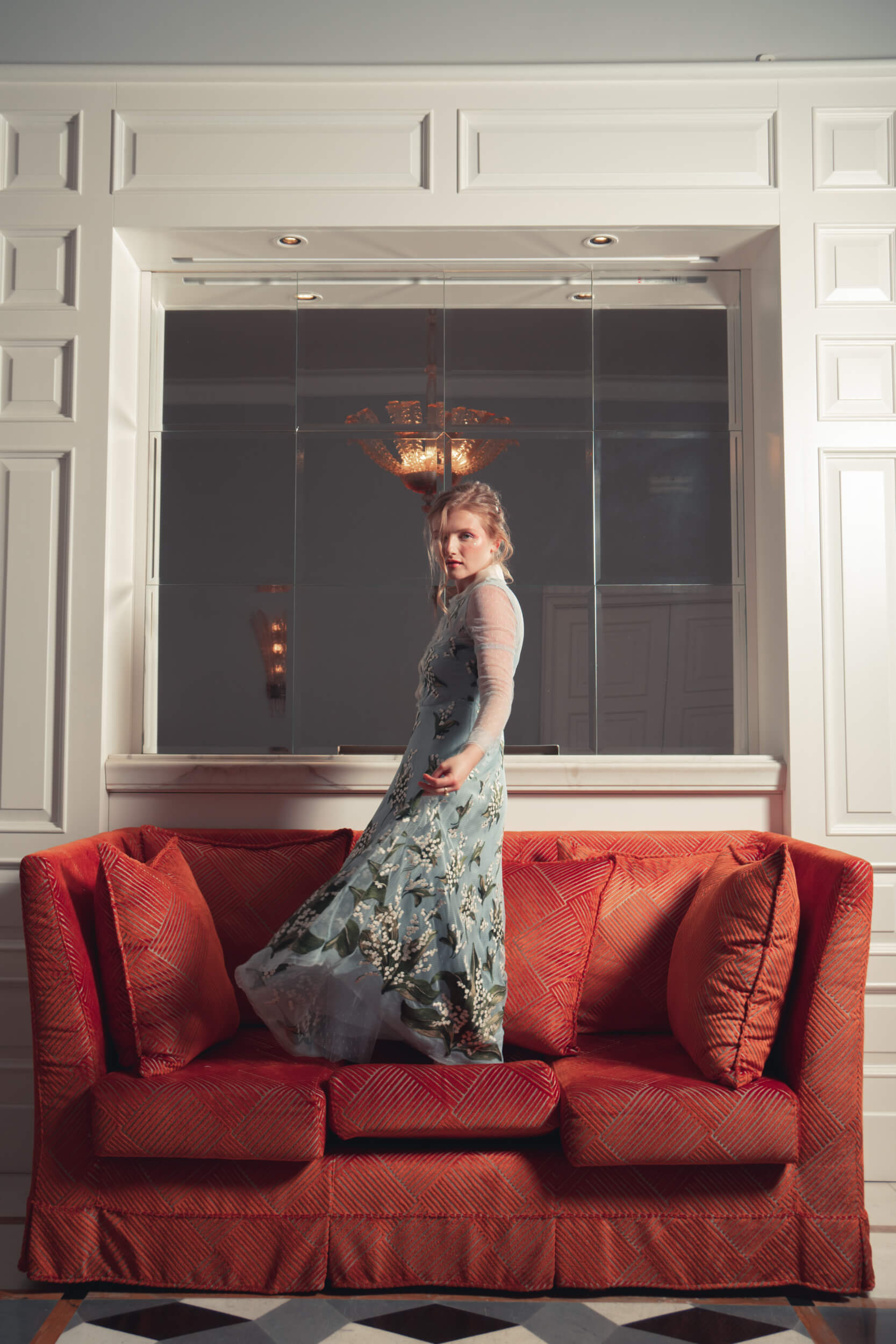
Your must-have on set.
My character’s playlist to listen to in my headphones.
Epic fail on the job.
I was doing an audition with a very important director, and during an improvisation, he asked me to take off my shoes with a sensual gesture. I was wearing a pair of leather, high-heeled pumps, it was hot, and I was very nervous. In short, I started doing what I had to do, but I couldn’t take off that damn shoe. After several attempts, and trying to act nonchalantly in every way I could, I burst into laughter, and luckily he did the same. Let’s say I was a Bridget Jones kind of sensual.
The film that you almost know by heart.
I can’t think of a specific one, but there are times in which I get obsessed with movies that I start watching multiple times, compulsively. The most recent one is “Call Me by Your Name” by Luca Guadagnino.
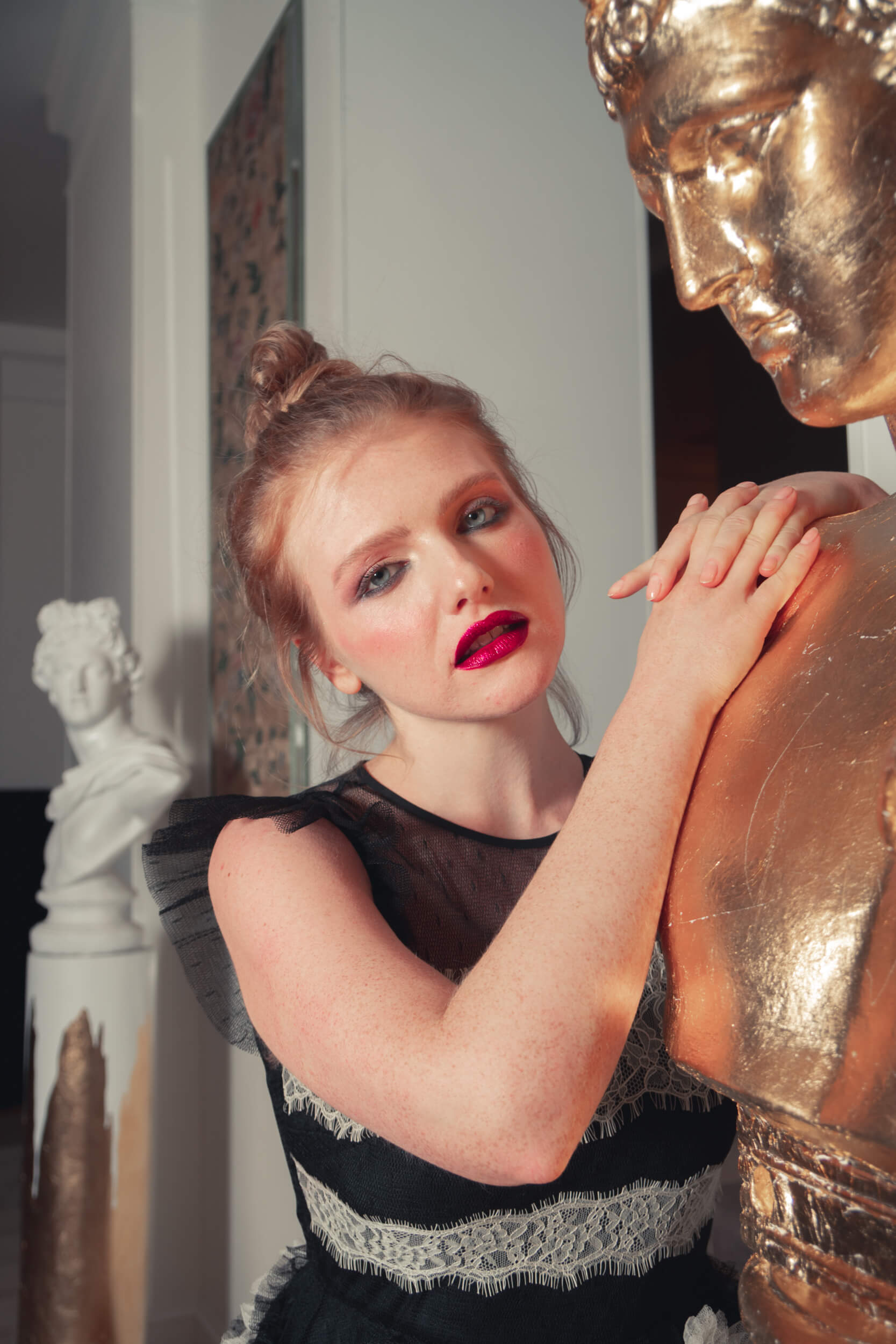
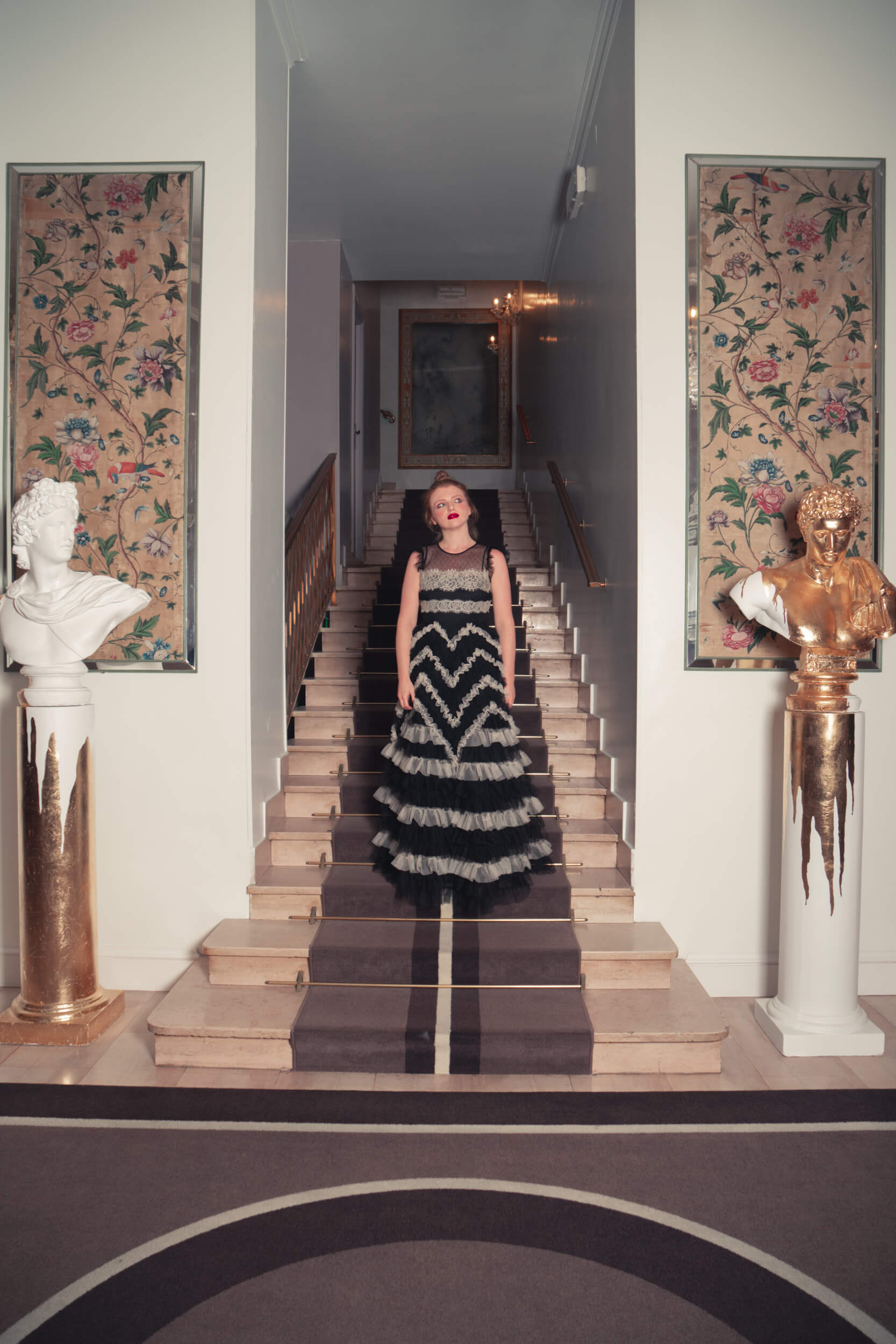
“There are times in which I get obsessed with movies that I start watching multiple times, compulsively.”
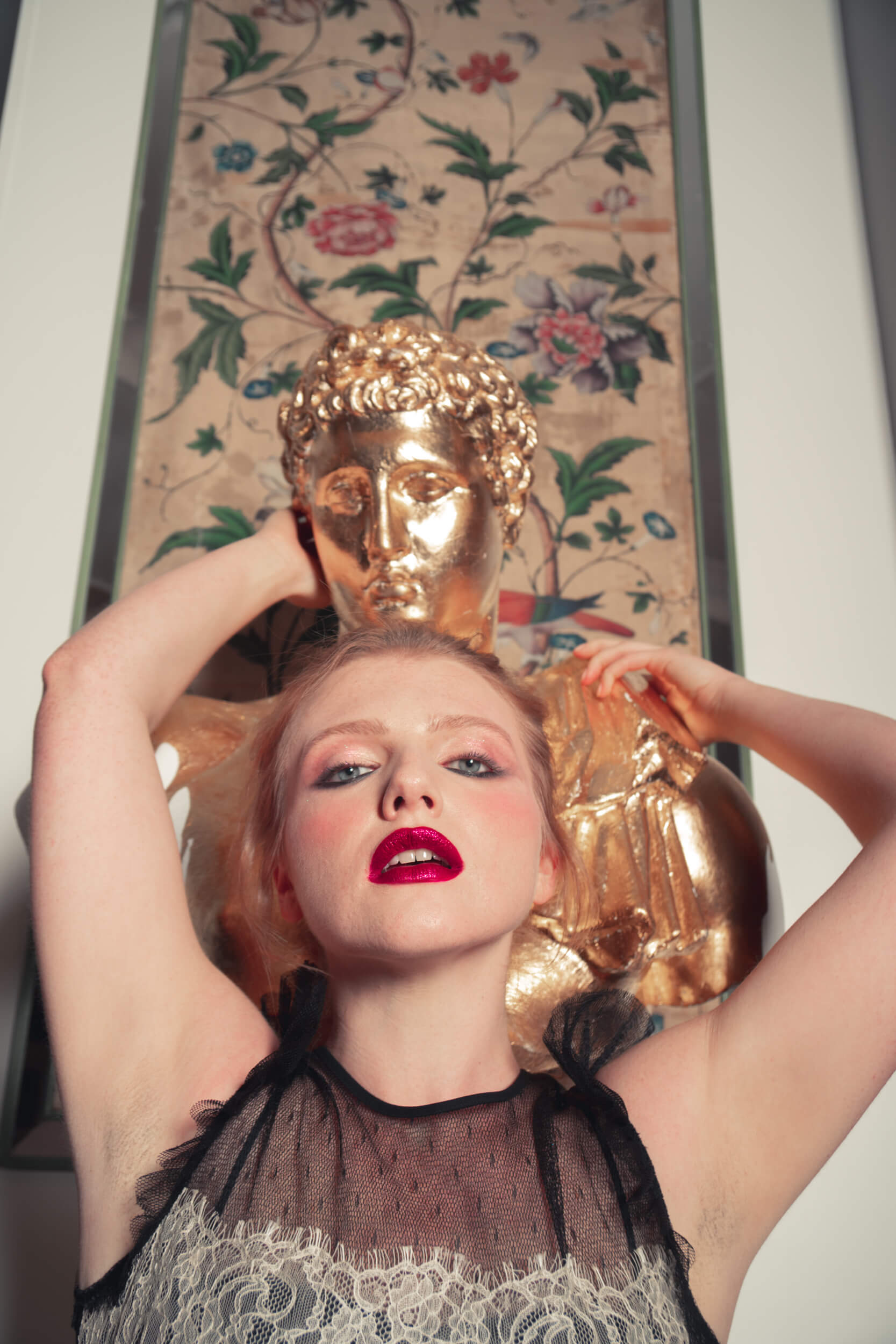
Who was your first celebrity crush from the big screen?
Brad Pitt in “Troy.”
Who’s a movie character you would like to be friends with?
Edward Scissorhands.
What are the stories you dream to tell?
I would want to tell stories with female protagonists, centered on women, on their world, and their point of view. They’re not only satellites serving exclusively men’s tales.
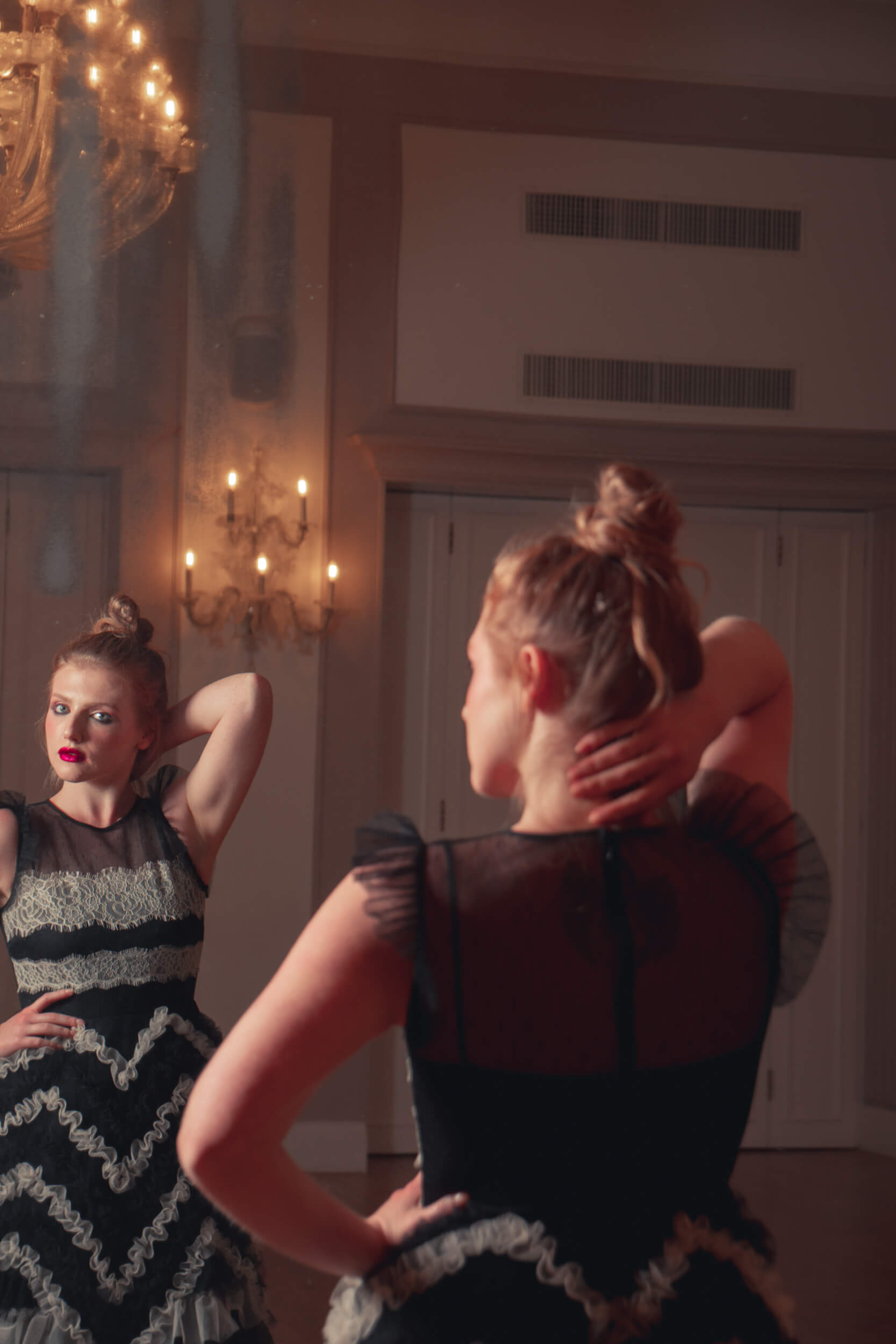
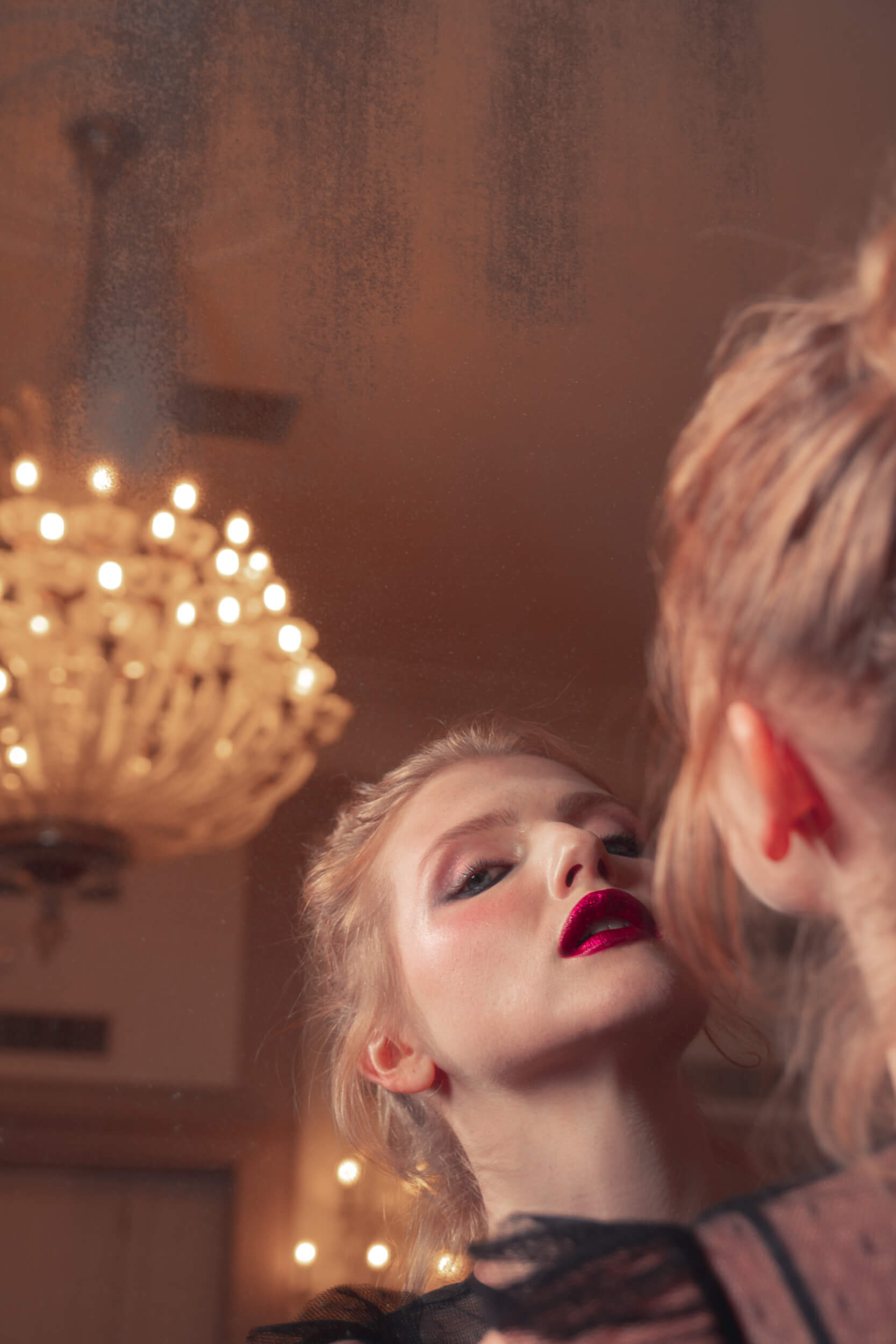
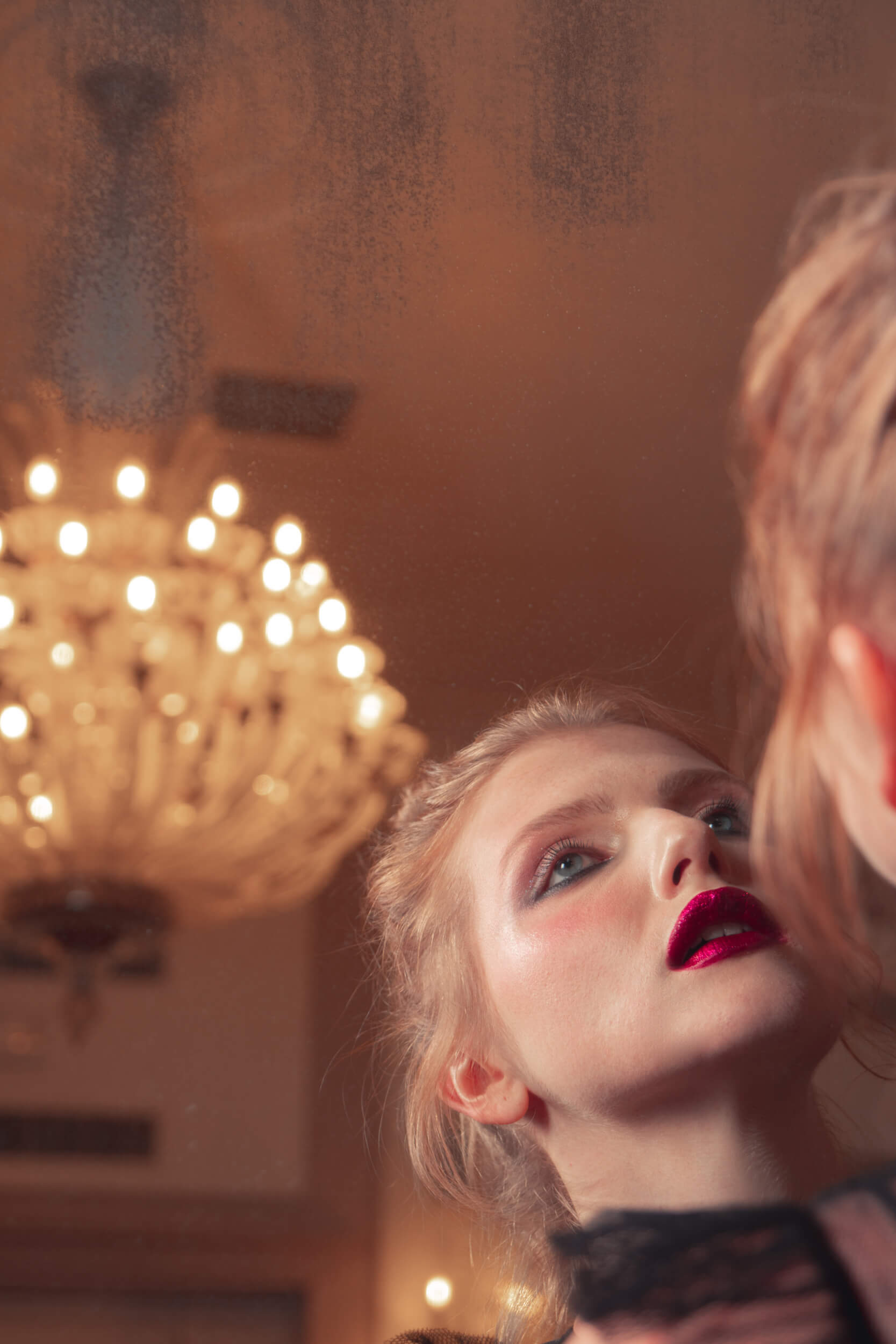
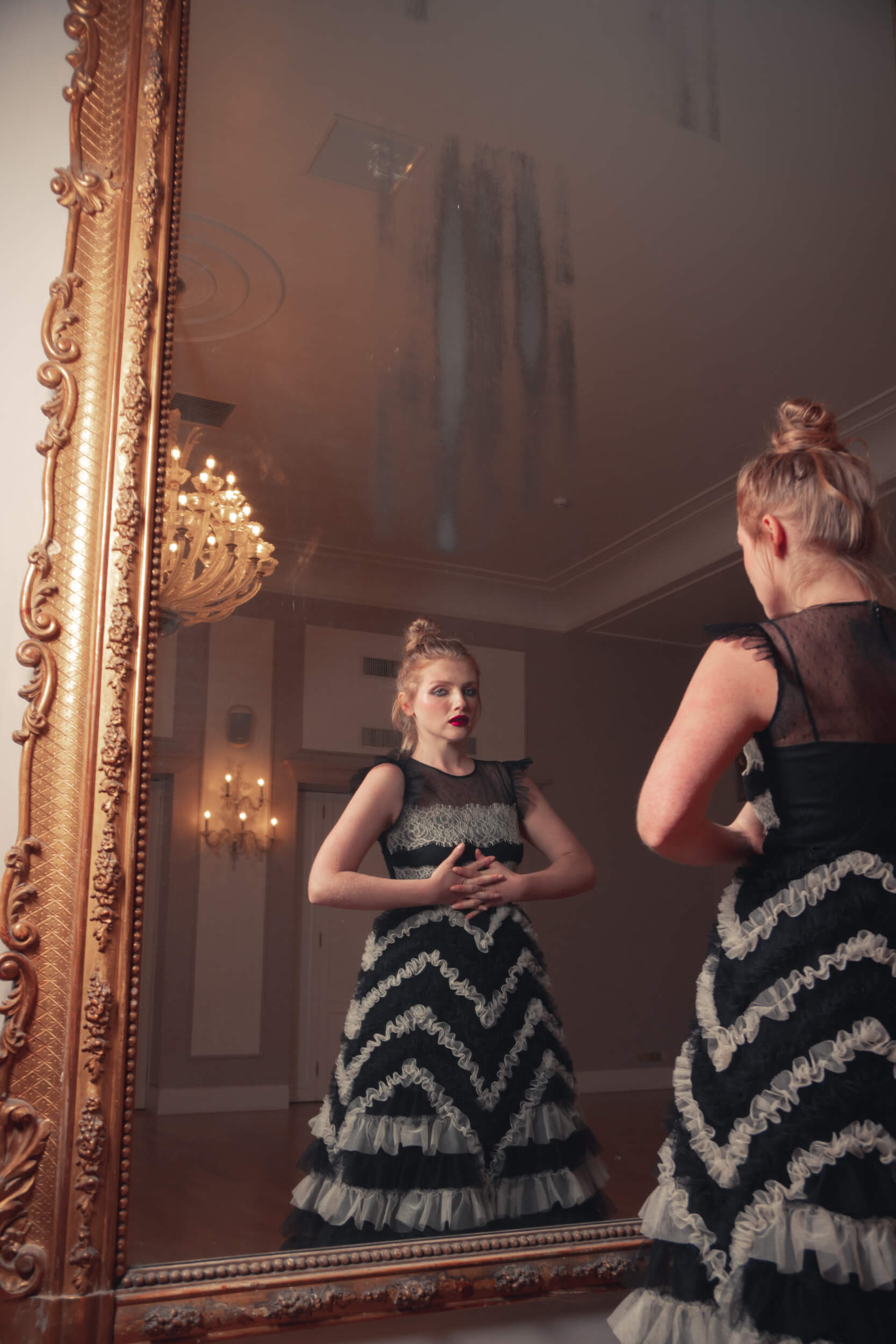
What’s the latest thing you found out about yourself?
That I can make mistakes.
Do you believe that Italian cinema is changing, is evolving? What would you like to see?
I think that Italian cinema has never stop forging its talents. Sometimes, there has simply been a lack of space and will to bring them out and make them step into the light. I look forward to more meritocracy and braver choices by the productions.
What can you unveil about your future projects?
I’m going to play a very deep and delicate role in a project set in a dramatic historical context which is a key element of our story and I hope it’s never forgotten. The production had to stop at the moment because of the pandemic, but I hope we can start as soon as possible.
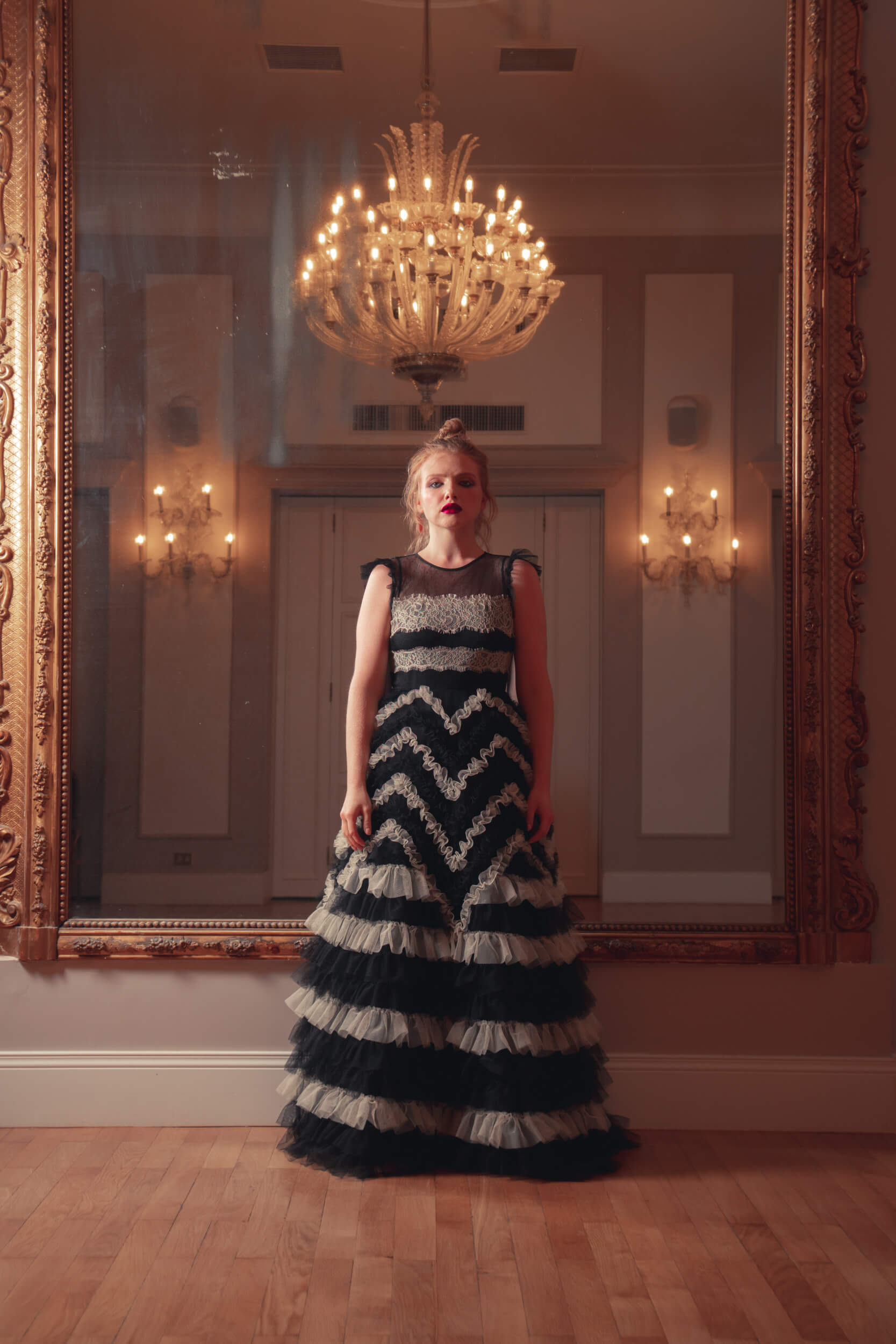
“I look forward to more meritocracy and braver choices by the productions.”
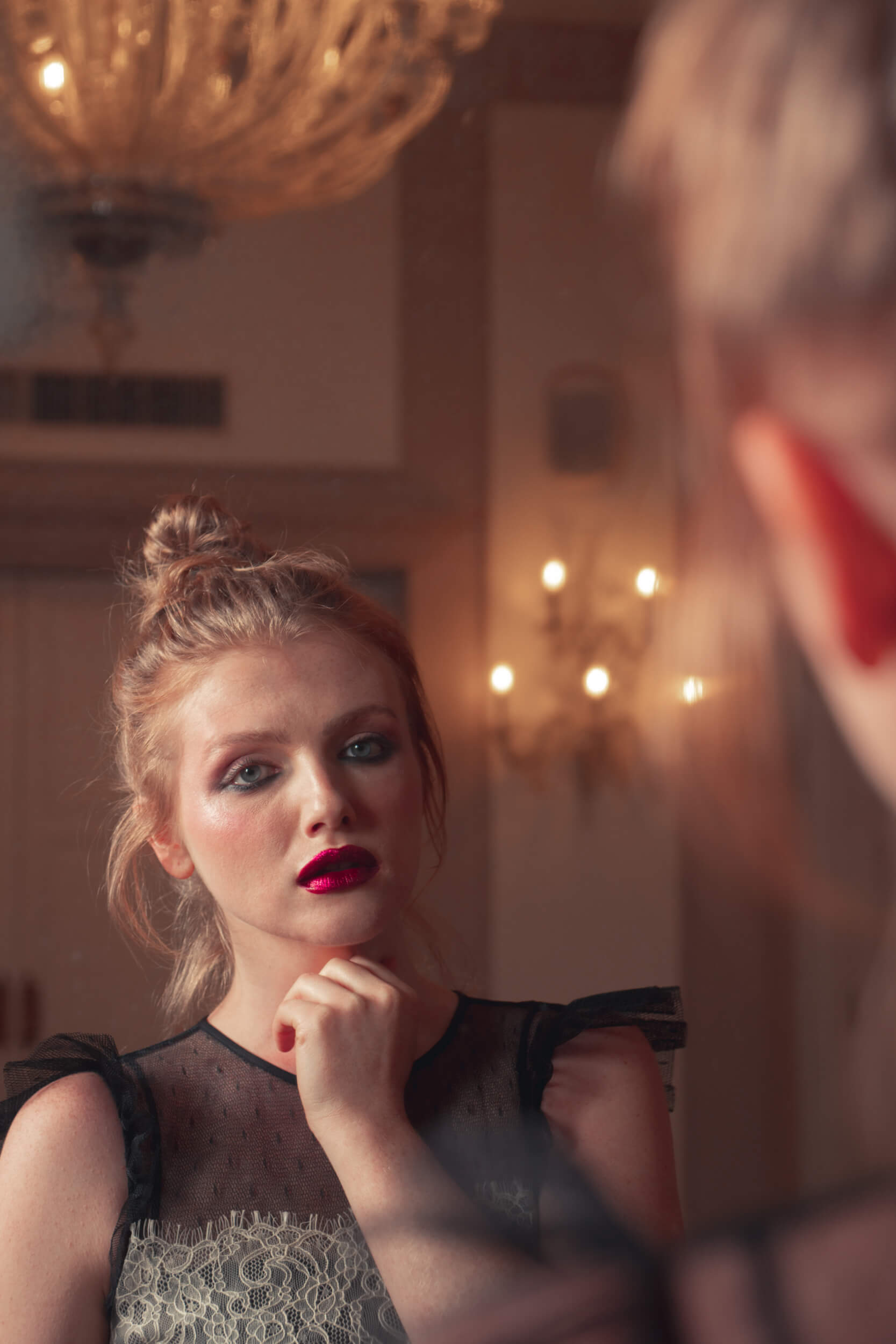
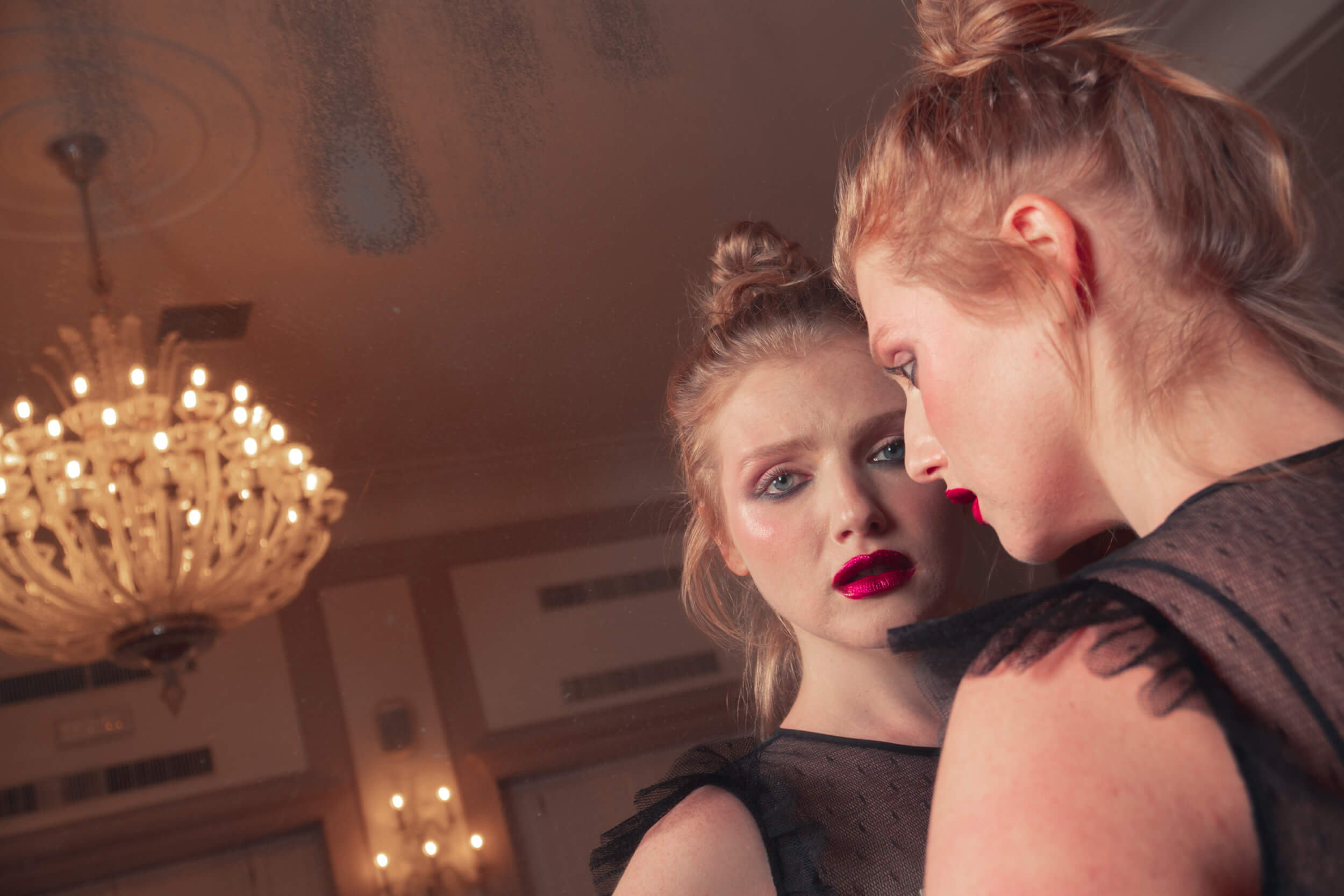
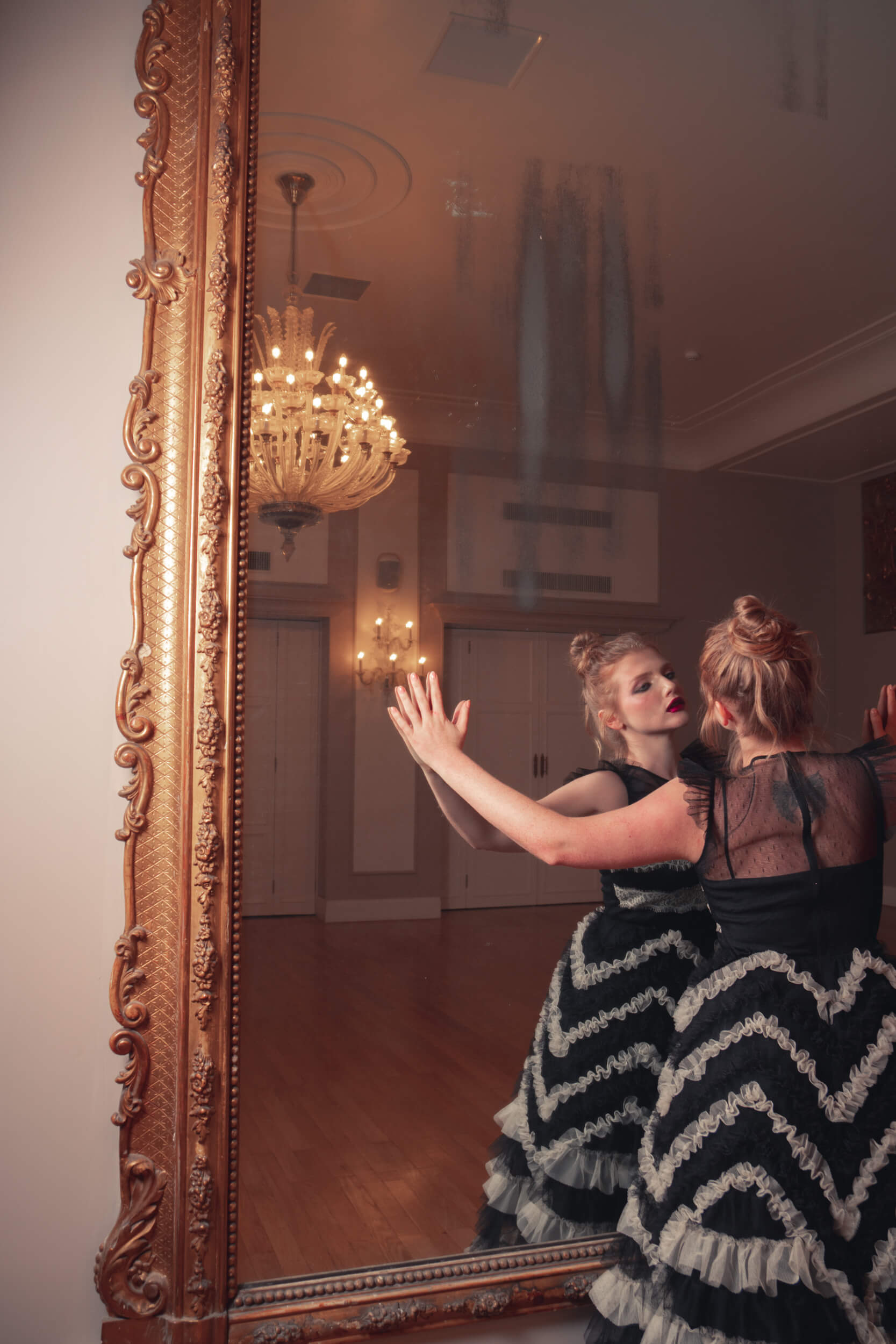
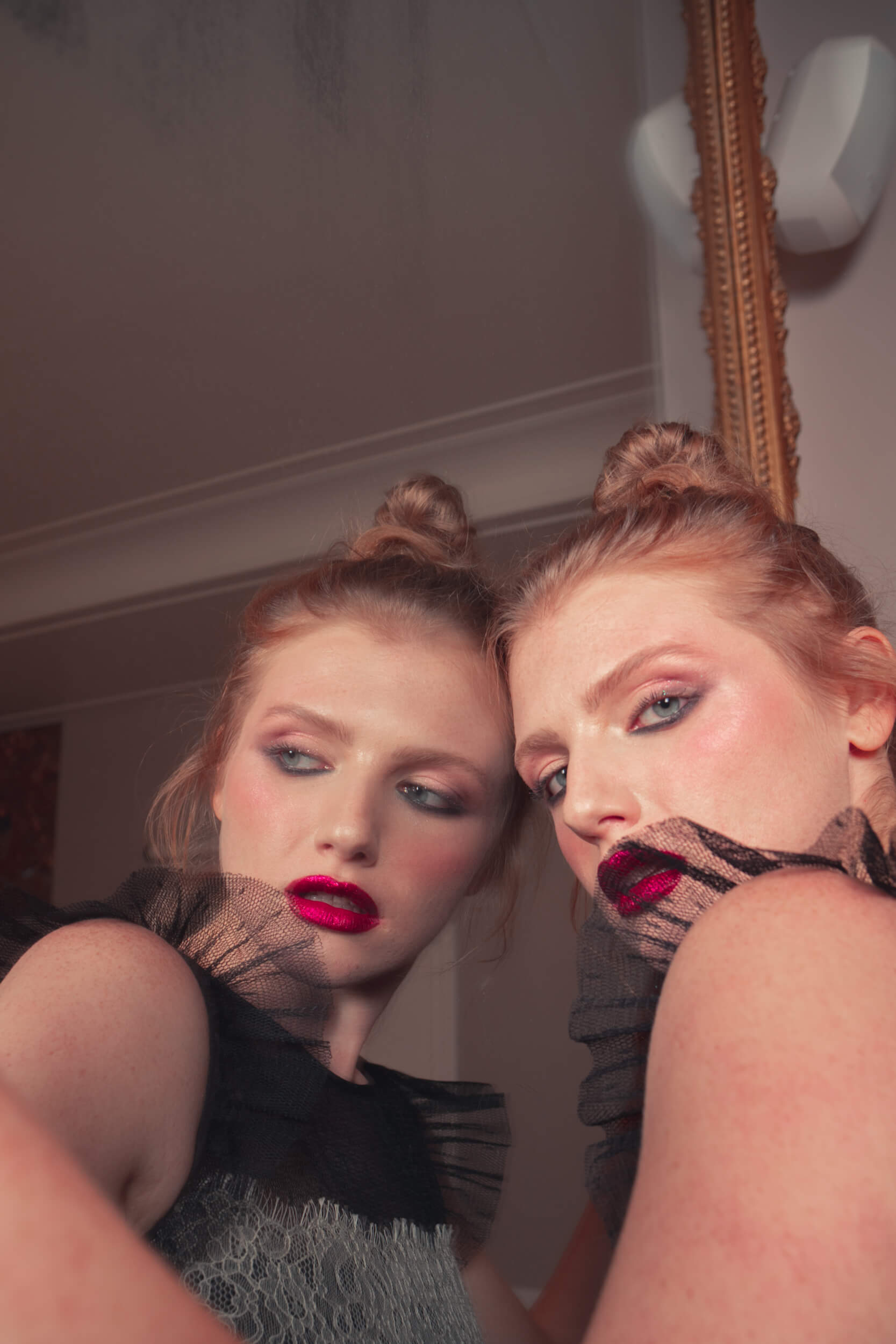
Photo & Video by Johnny Carrano.
Total Looks by REDValentino.
Makeup by Carlotta Badiali.
Thanks to Hotel Savoy Roma.
Thanks to Giusy Ghisalberti, Ceo Founder di Location di Charme.

